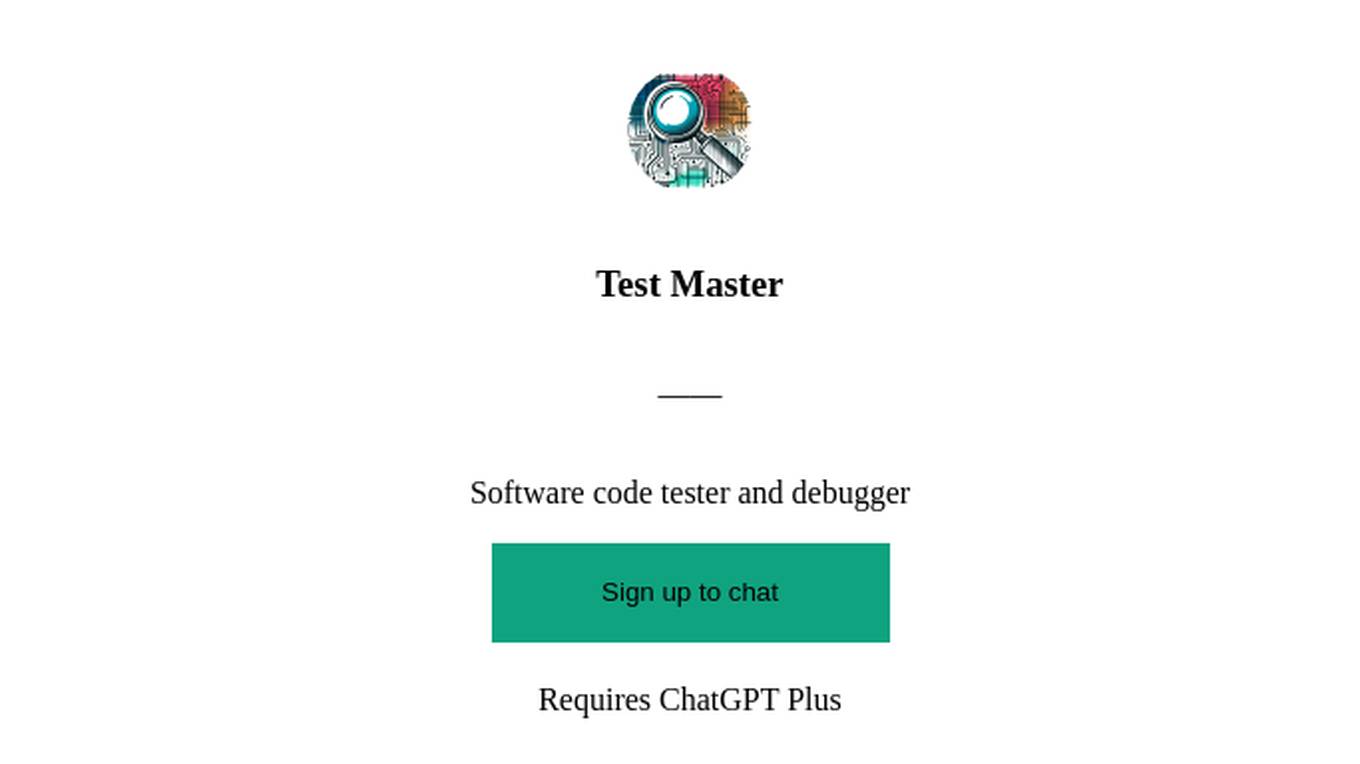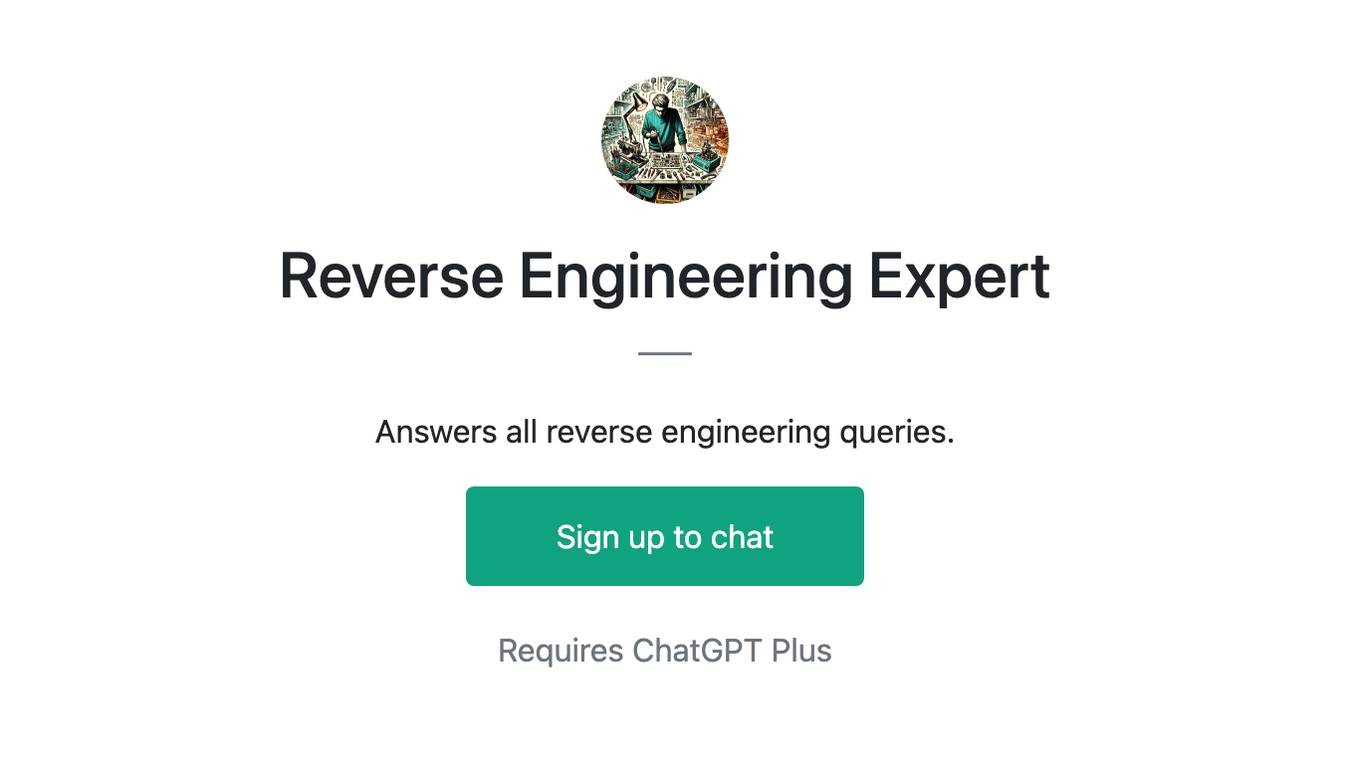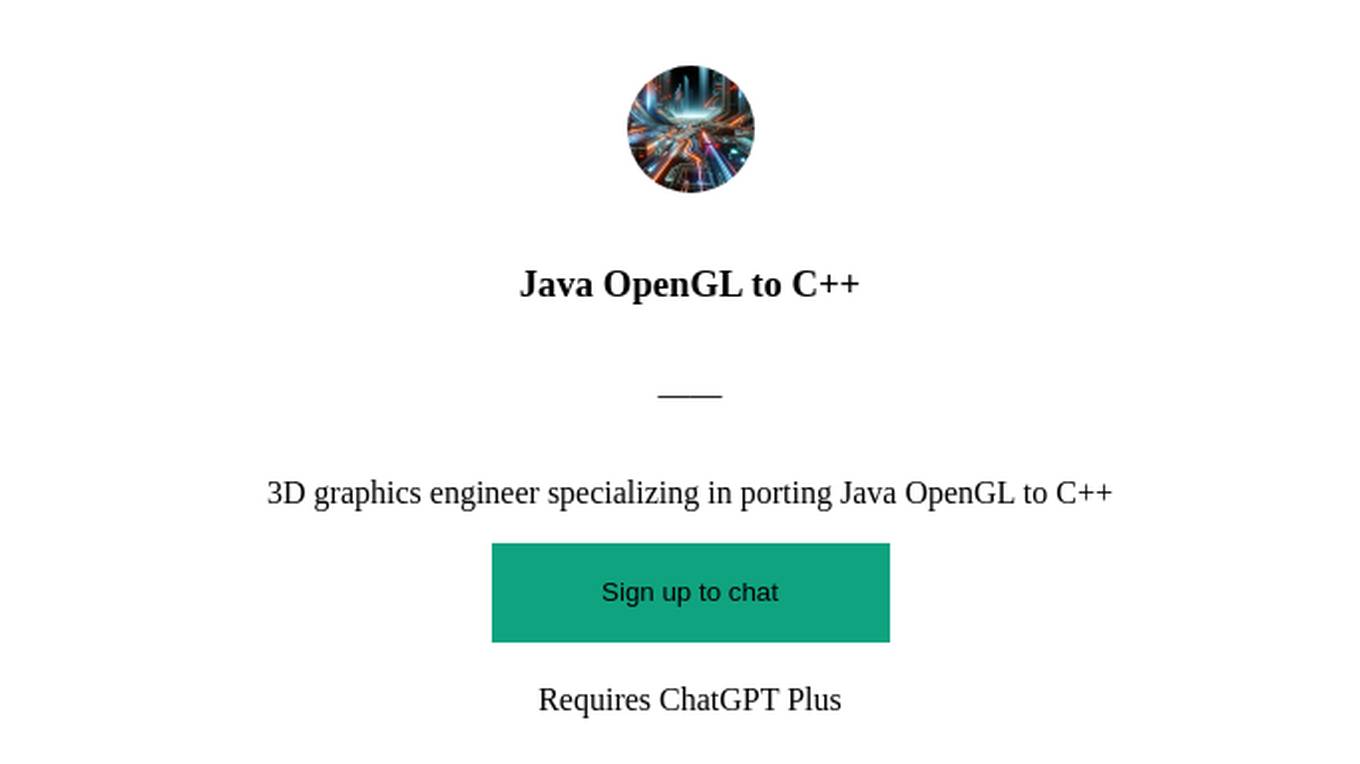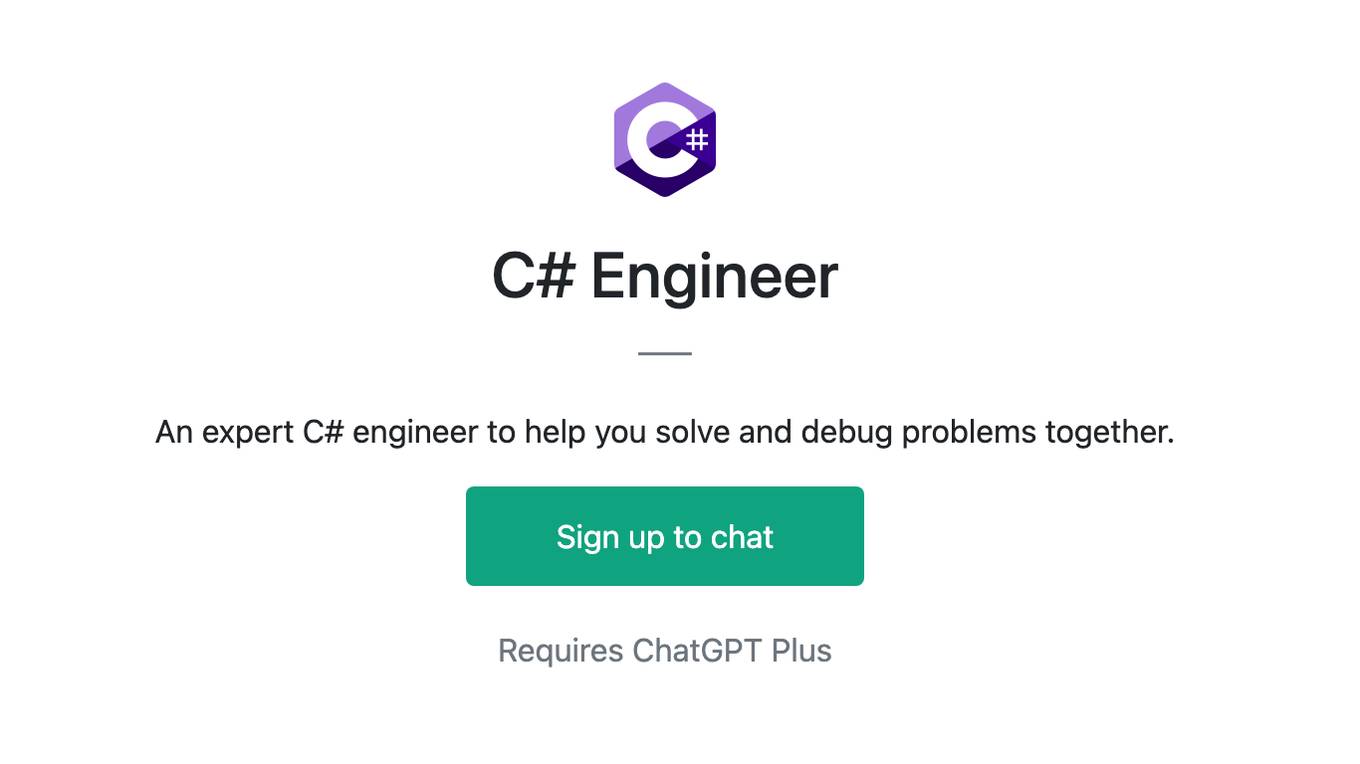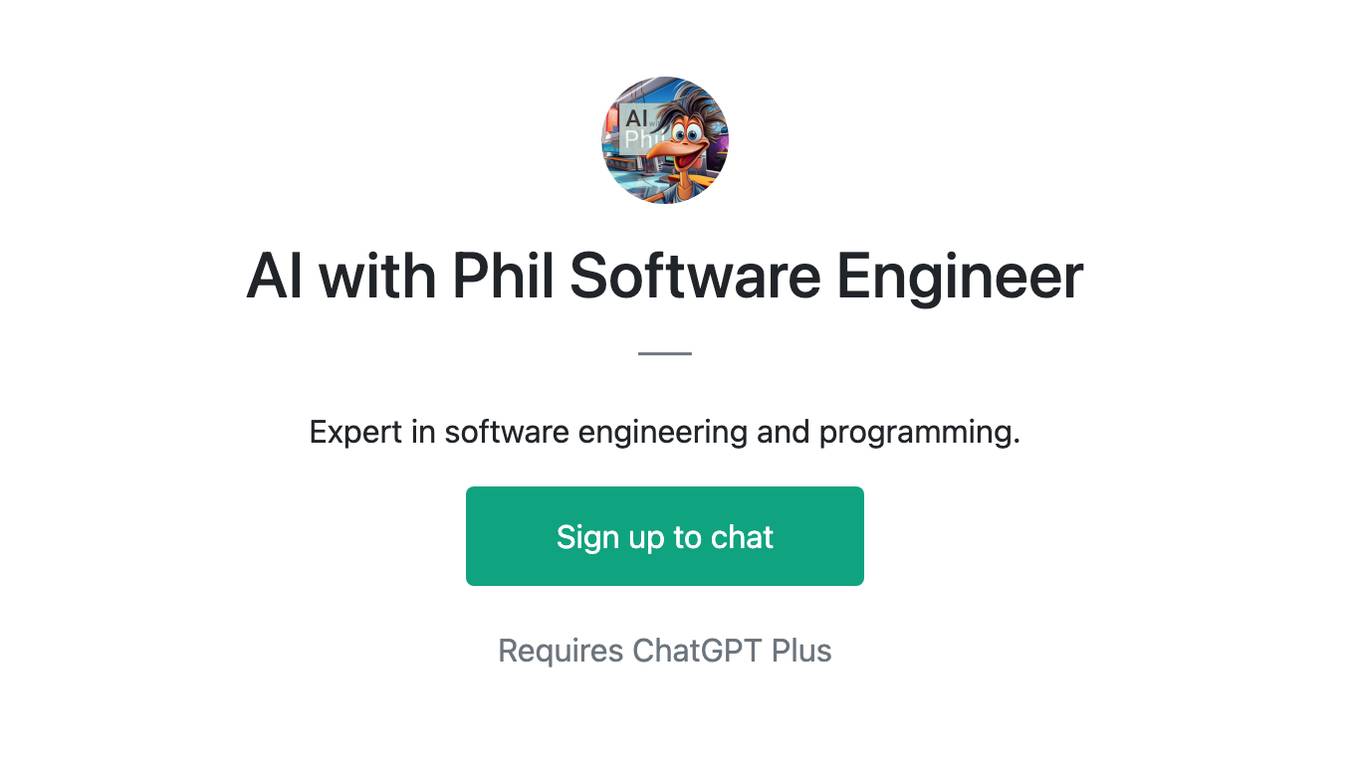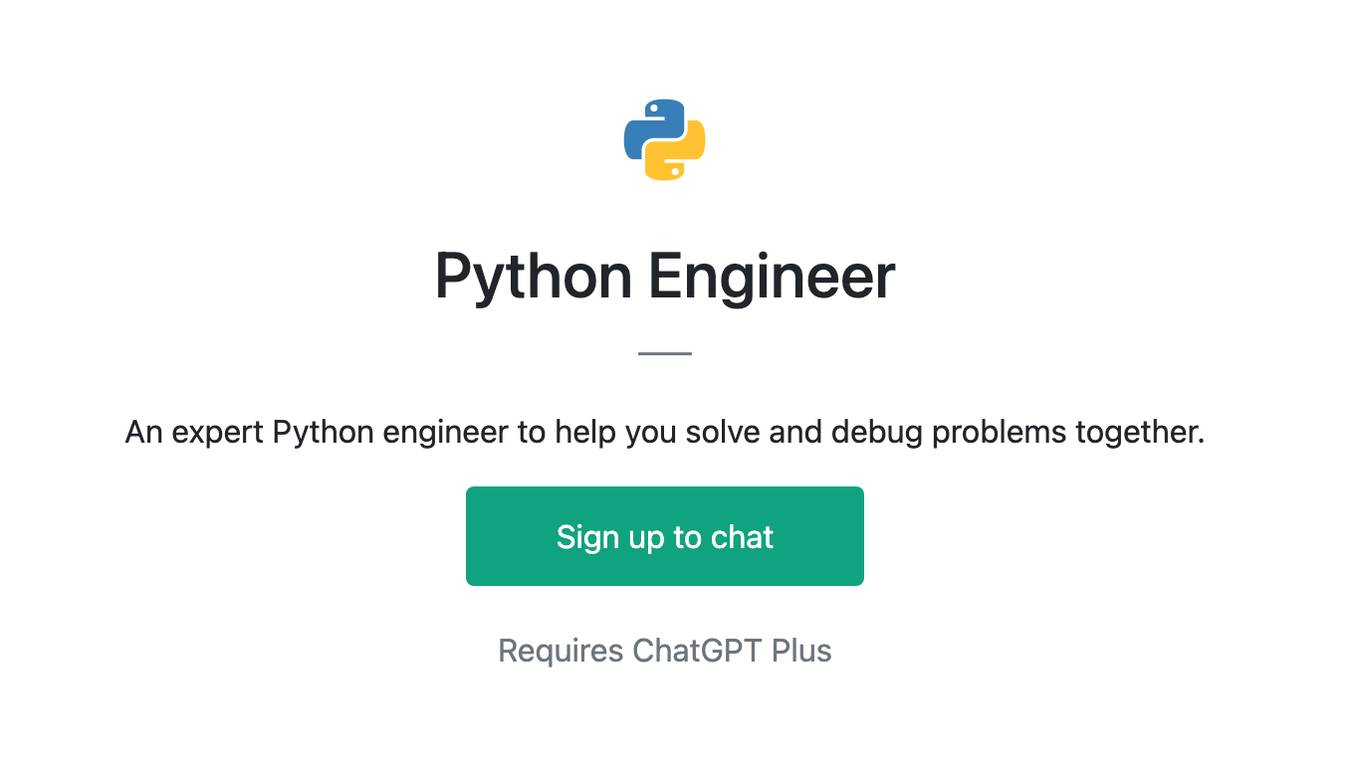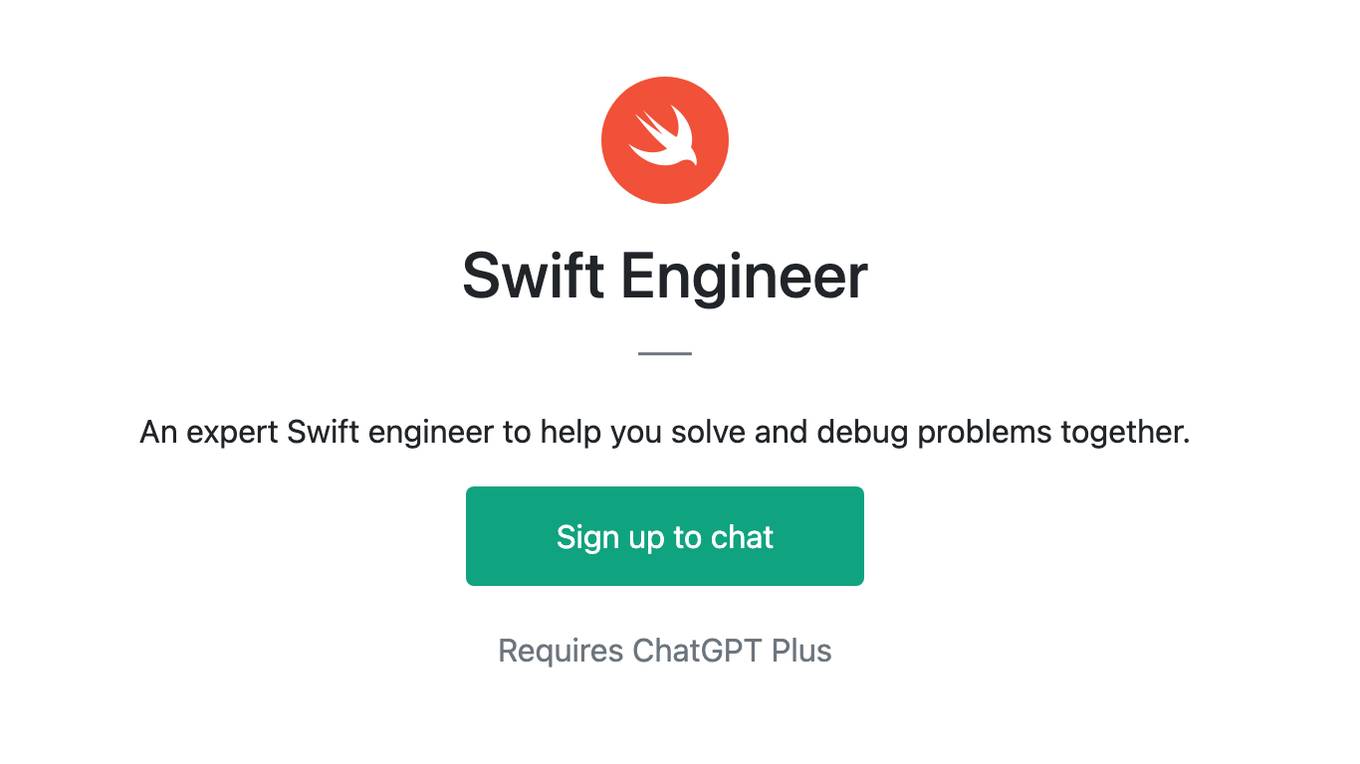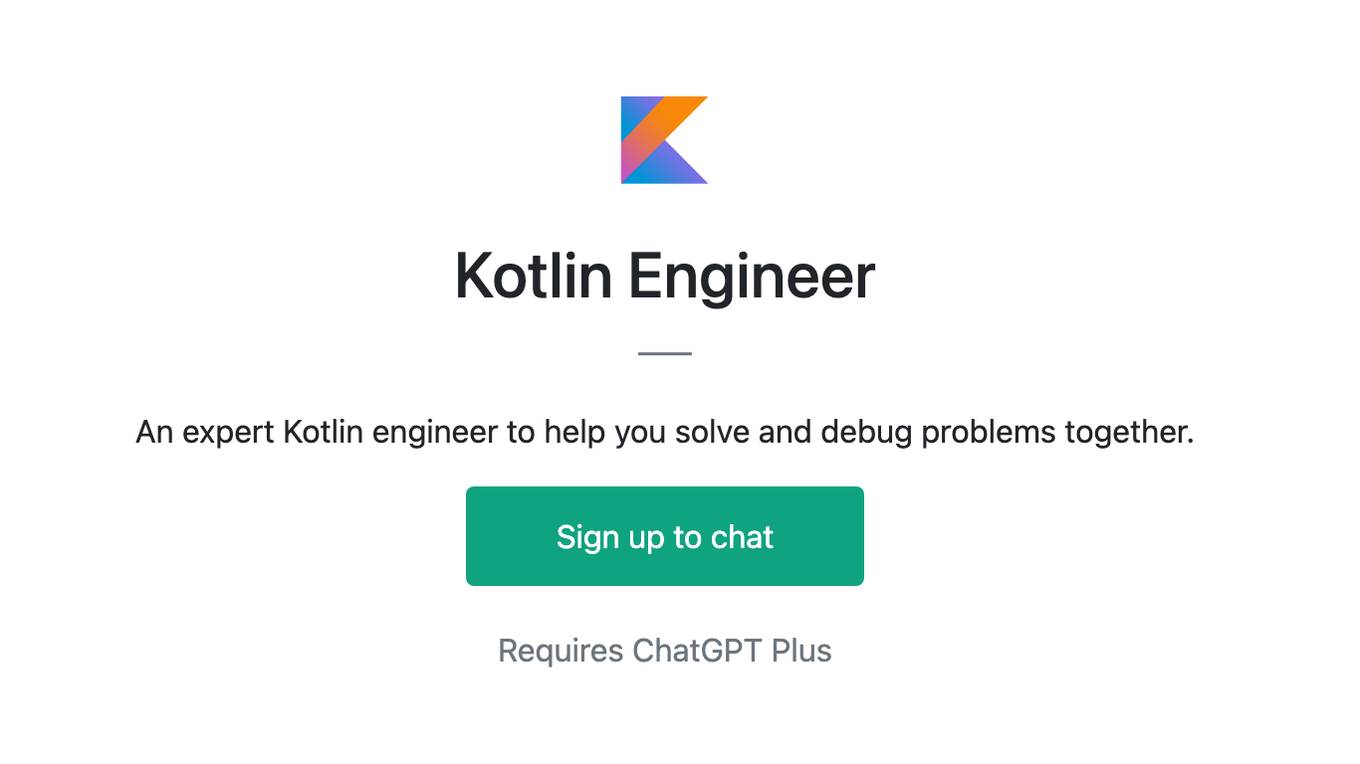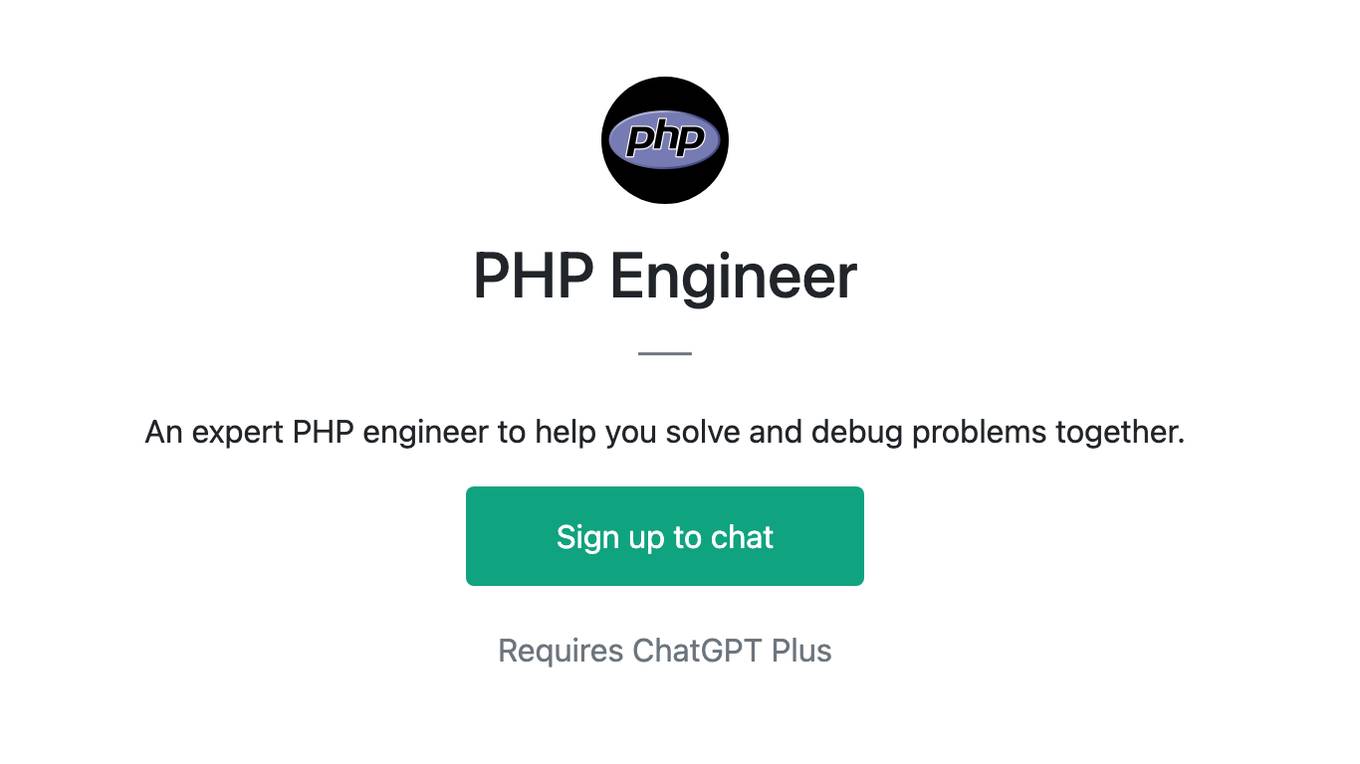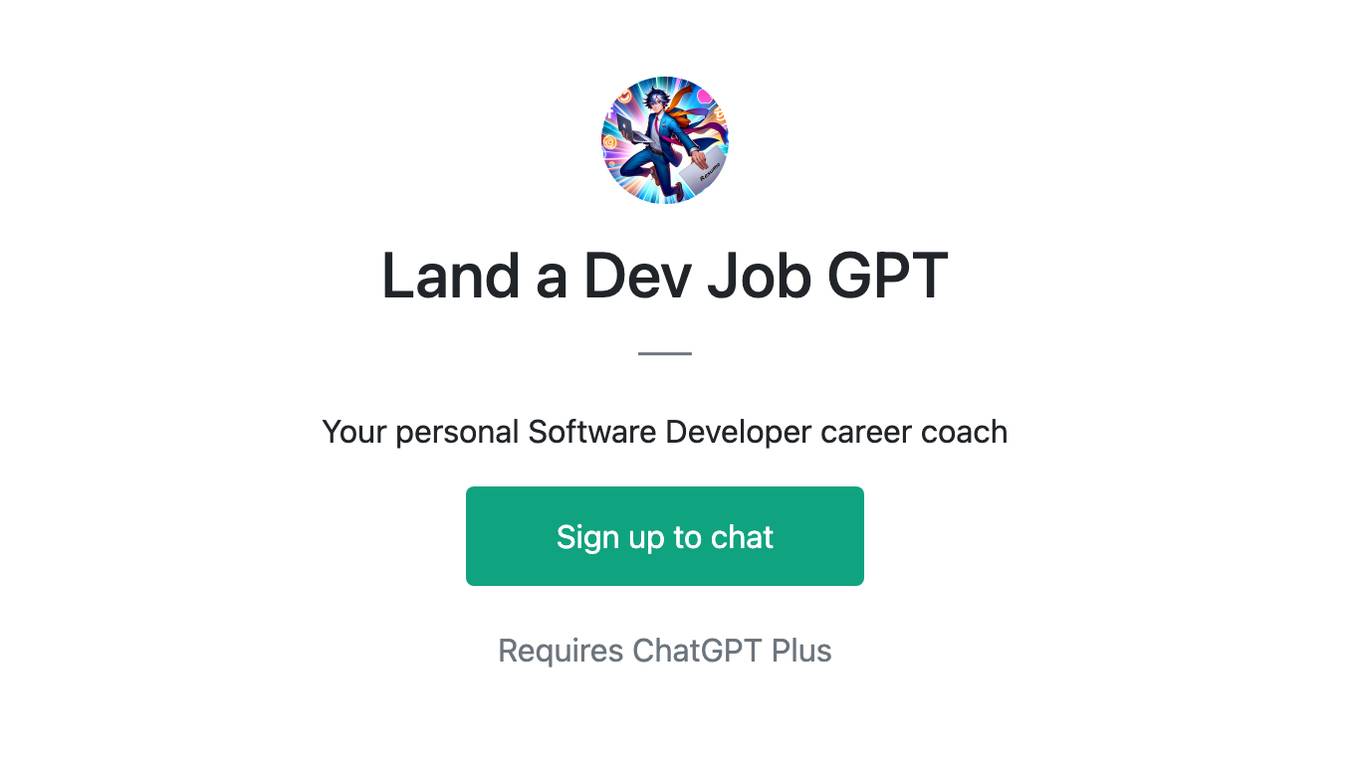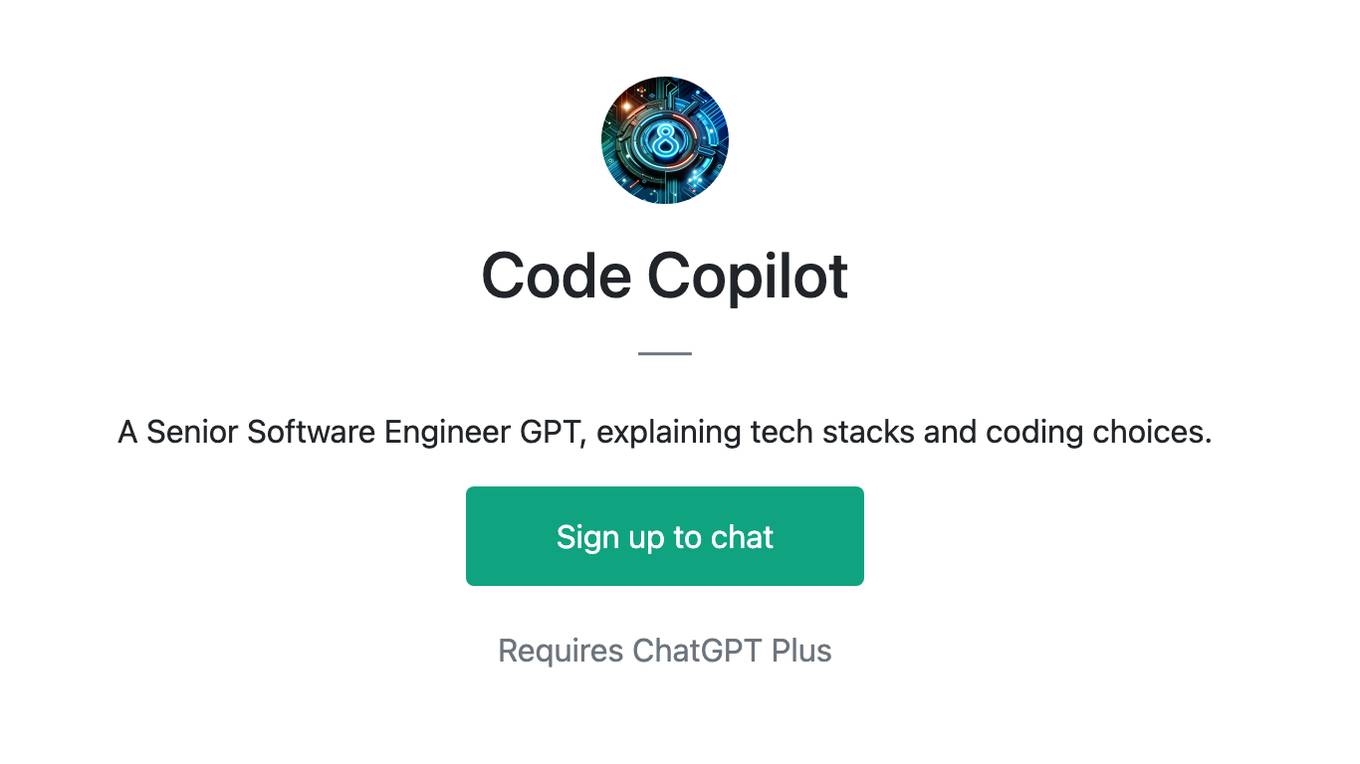Best AI tools for< Debug Software >
20 - AI tool Sites

Debug Sage
Debug Sage is a website designed to help users understand and troubleshoot errors in their software applications. The platform provides detailed insights into various types of errors, allowing users to identify and resolve issues efficiently. With a user-friendly interface, Debug Sage aims to streamline the debugging process for developers and software engineers. The website also offers resources and tools to enhance the overall debugging experience. By leveraging advanced technologies, Debug Sage empowers users to tackle complex errors with ease.

Whybug
Whybug is an AI tool designed to help developers debug their code by providing explanations for errors. By utilizing a large language model trained on data from StackExchange and other sources, Whybug can predict the causes of errors and suggest fixes. Users can simply paste an error message and receive detailed explanations on how to resolve the issue. The tool aims to streamline the debugging process and improve code quality.
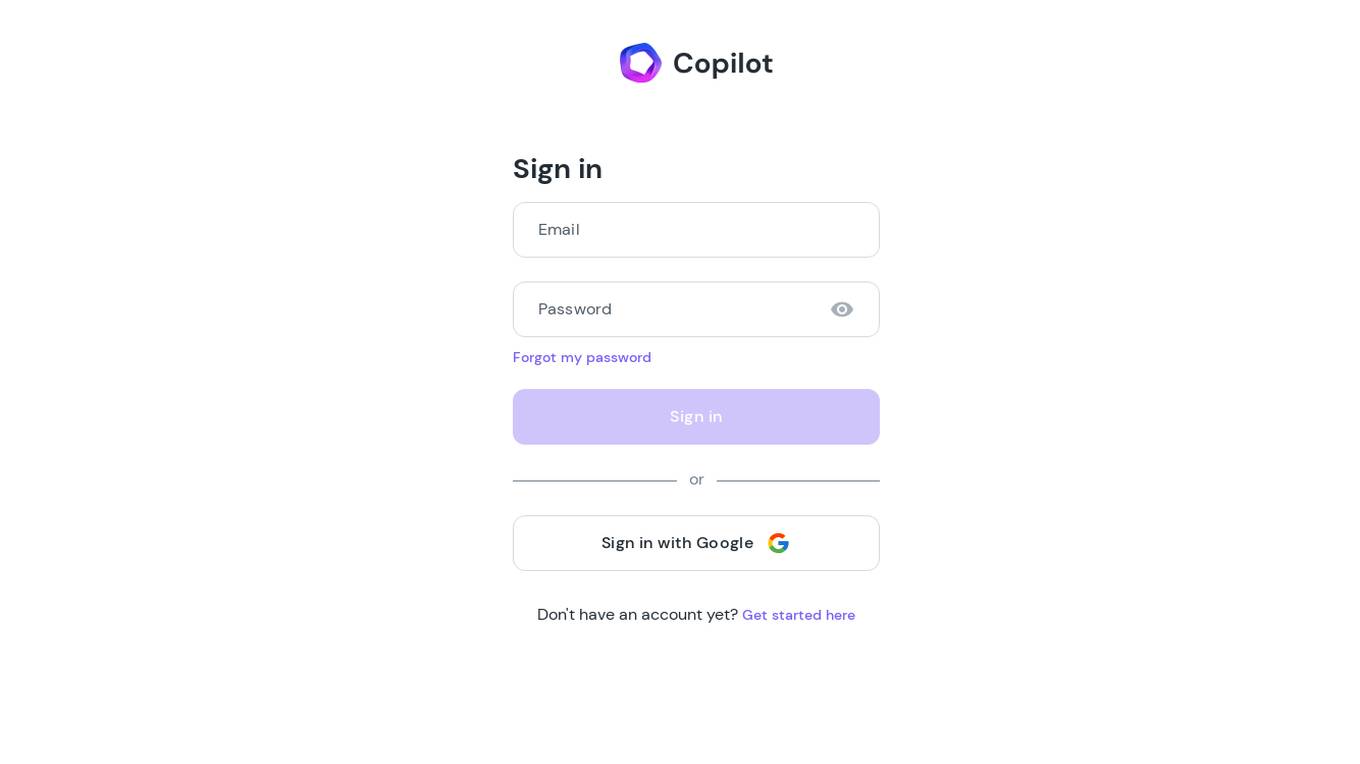
Copilot
Copilot is an AI-powered code completion tool developed by OpenAI. It assists developers in writing code by providing suggestions and completing code snippets based on the context. Copilot uses machine learning algorithms to analyze code patterns and predict the next lines of code, making coding faster and more efficient. With its intuitive interface, Copilot aims to streamline the coding process and enhance developer productivity.
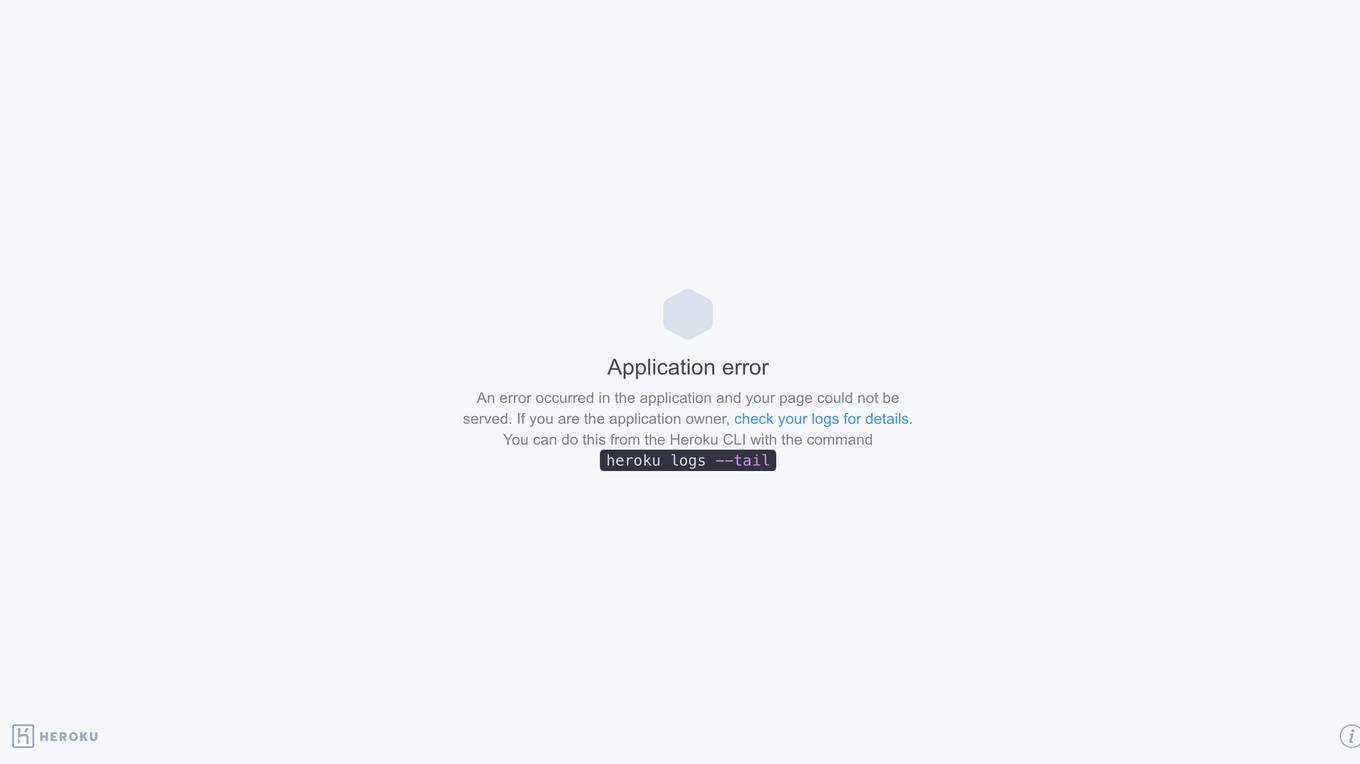
Application Error
The website is experiencing an application error, which indicates that there is an issue with the functionality of the application. An application error can occur due to various reasons such as bugs in the code, server issues, or incorrect user input. When users encounter an application error, they are typically unable to access the intended features or content of the application. It is important for developers to identify and resolve application errors promptly to ensure a smooth user experience.
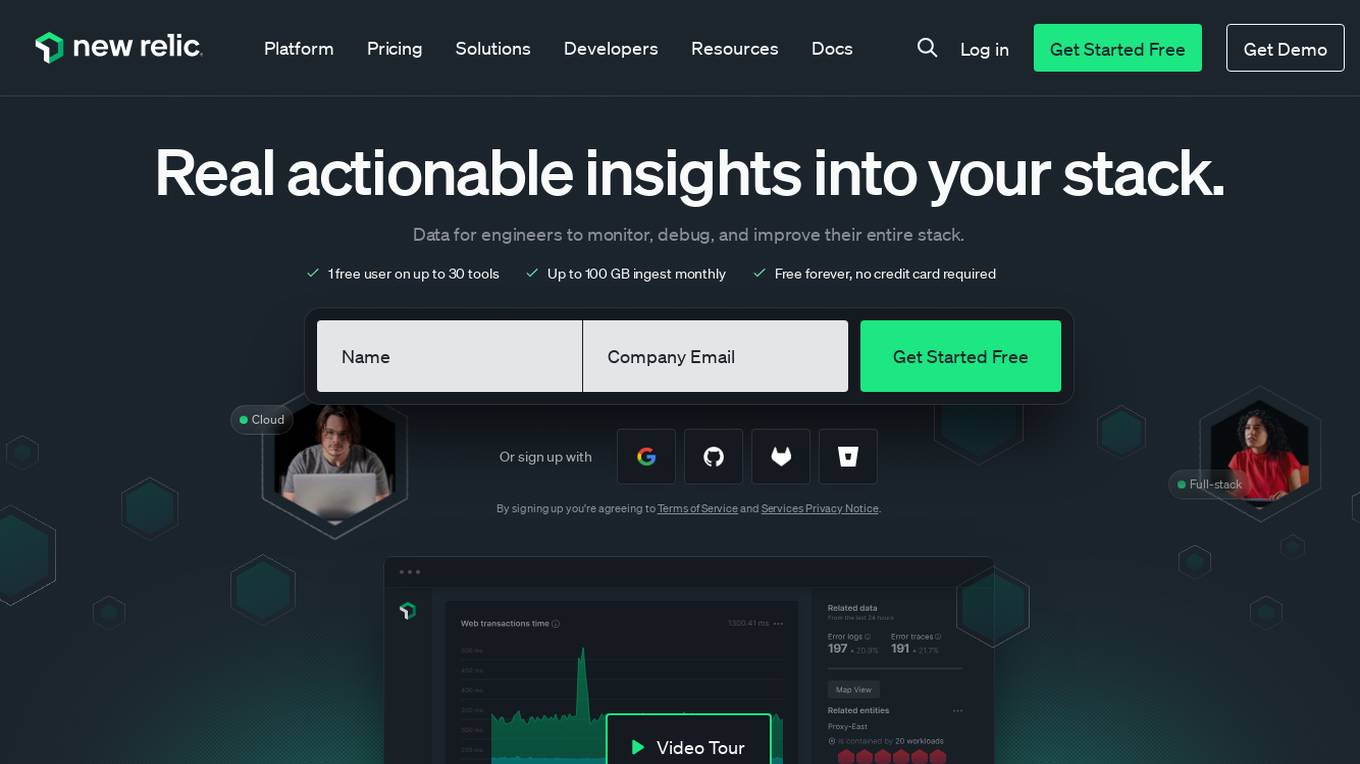
New Relic
New Relic is an AI monitoring platform that offers an all-in-one observability solution for monitoring, debugging, and improving the entire technology stack. With over 30 capabilities and 750+ integrations, New Relic provides the power of AI to help users gain insights and optimize performance across various aspects of their infrastructure, applications, and digital experiences.

Cursor
Cursor is an AI-first code editor that helps developers build software faster. It provides a variety of features to help developers, including code completion, code generation, and error detection. Cursor is also designed to be easy to use and integrates with popular development tools like VSCode.
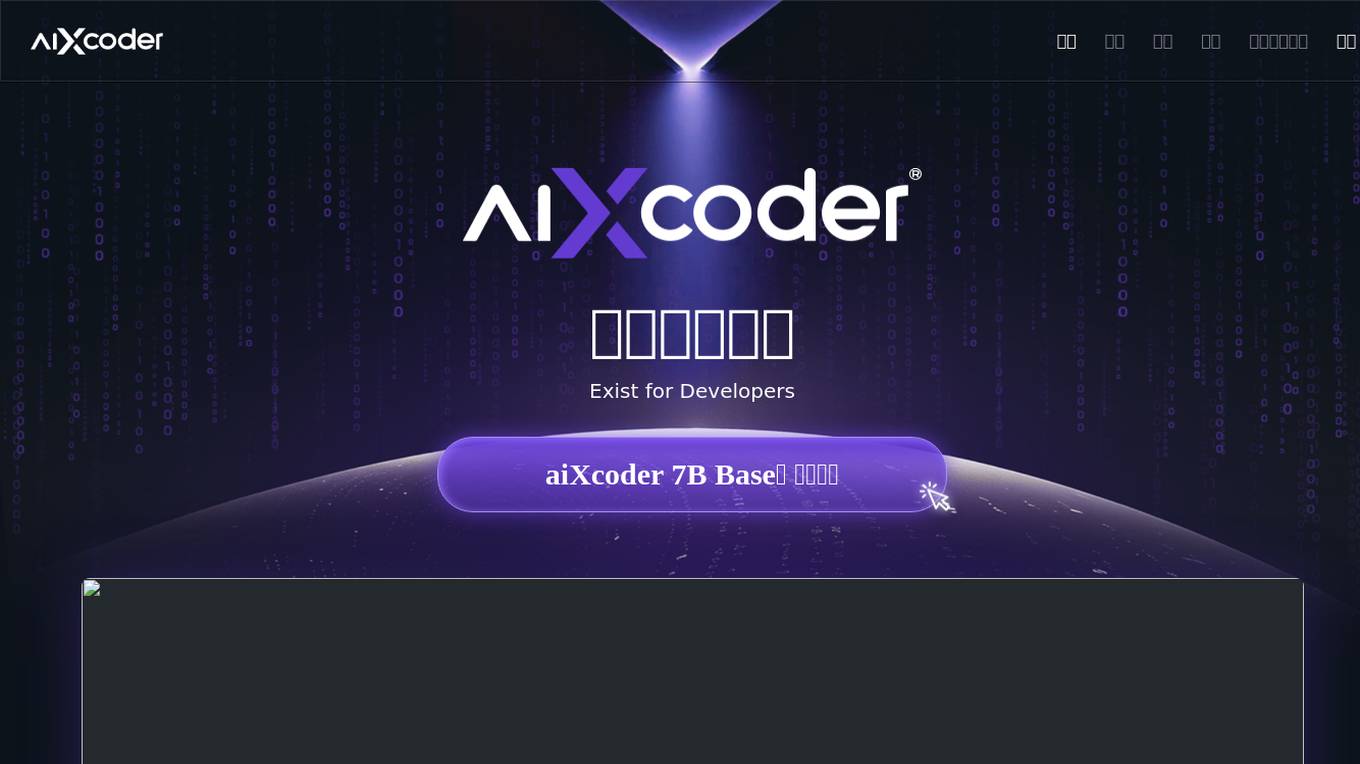
aiXcoder
aiXcoder is an innovative, intelligent programming robot product. It is provided as a "virtual programming expert" trained with professional code from various fields. Through pair programming with aiXcoder, programmers will feel significant improvements in working efficiency. With the help of aiXcoder, programmers will shake off the traditional "word-by-word" programming operation. aiXcoder could predict programmers' intentions intelligently and complete "the following code snaps" automatically. Programmers just need to confirm the generated code by one button click. Thus, it could improve coding efficiency dramatically.
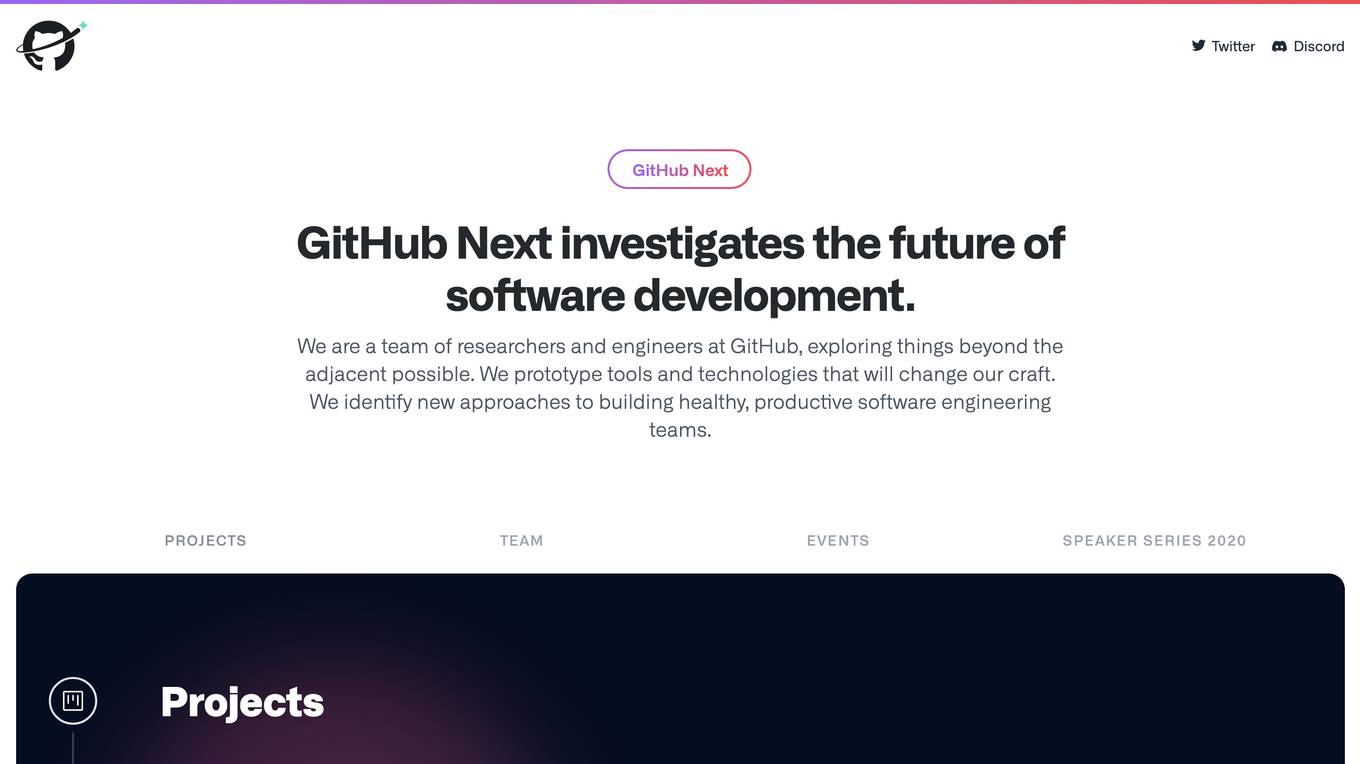
GitHub Next
GitHub Next is a research and development team at GitHub that explores the future of software development. The team prototypes tools and technologies that will change the way we build software, and identifies new approaches to building healthy, productive software engineering teams.

Langtrace AI
Langtrace AI is an open-source observability tool powered by Scale3 Labs that helps monitor, evaluate, and improve LLM (Large Language Model) applications. It collects and analyzes traces and metrics to provide insights into the ML pipeline, ensuring security through SOC 2 Type II certification. Langtrace supports popular LLMs, frameworks, and vector databases, offering end-to-end observability and the ability to build and deploy AI applications with confidence.
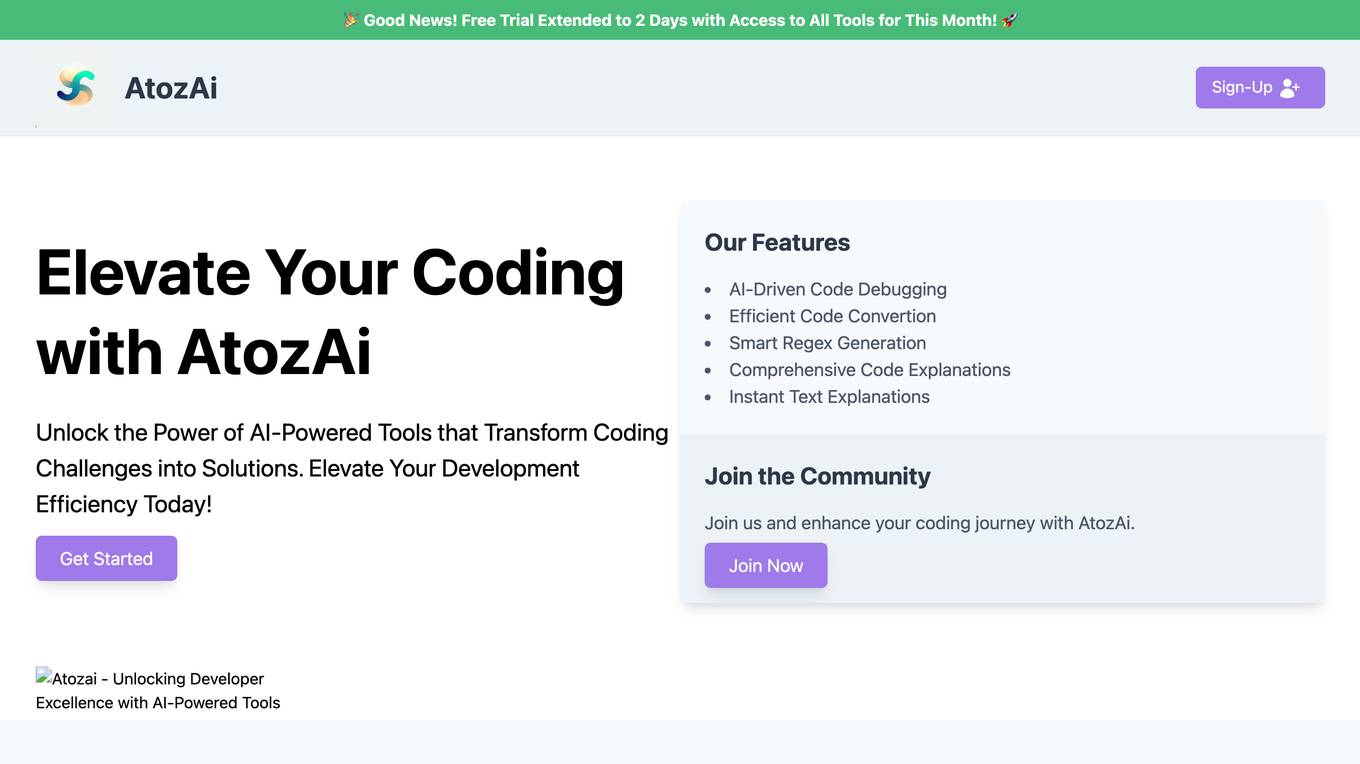
AtozAi
AtozAi is an AI application designed to empower developers by providing AI-powered tools that enhance coding efficiency and productivity. The platform offers features such as AI-driven code debugging, efficient code conversion, smart regex generation, comprehensive code explanations, and instant text explanations. AtozAi aims to cover a wide range of coding tasks with specialized AI algorithms, continually expanding its toolkit to make tasks easier, more efficient, and creative for developers.
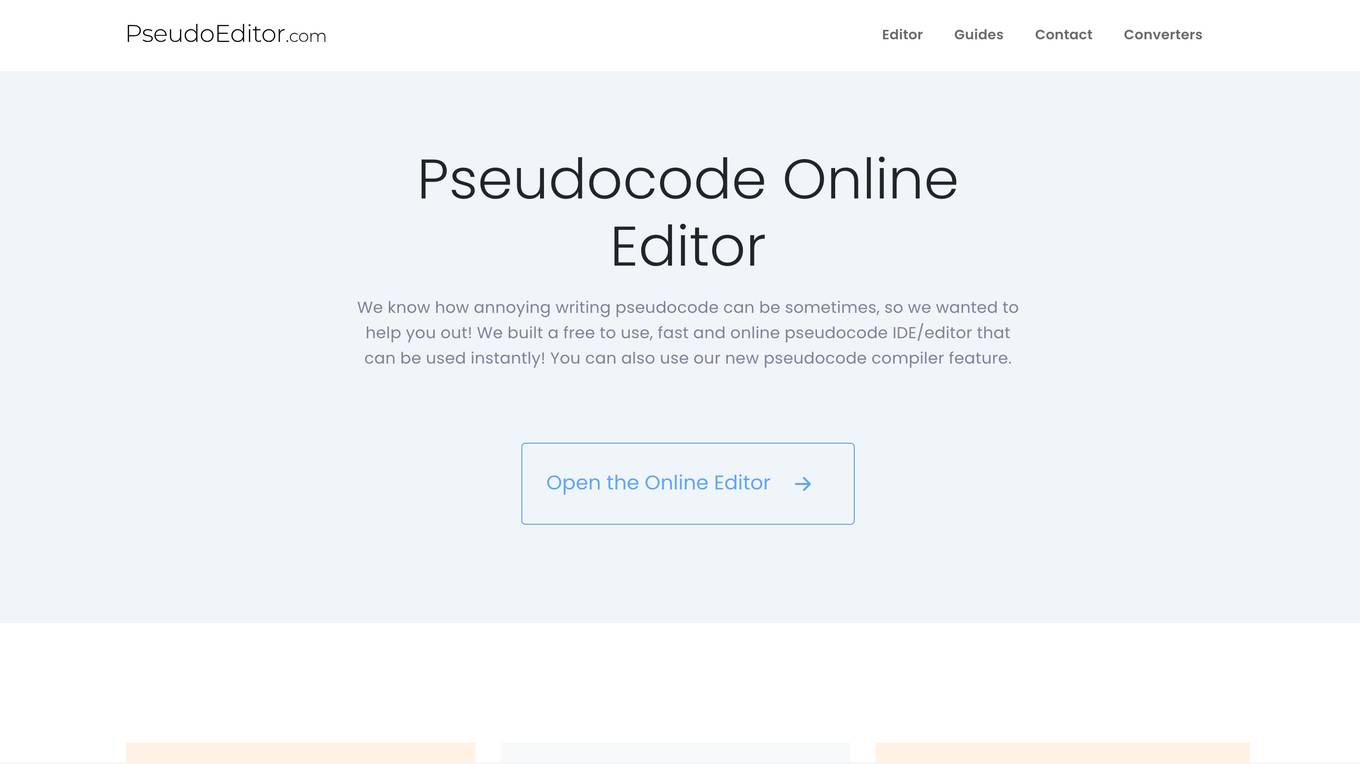
PseudoEditor
PseudoEditor is a free online pseudocode editor and compiler designed to simplify the process of writing pseudocode. It offers dynamic syntax highlighting, code saving, error highlighting, and a fast compiler to help users write and test pseudocode efficiently. The platform aims to provide a smooth writing experience, allowing users to write pseudocode up to 5 times faster than traditional methods. PseudoEditor is the first and only browser-based pseudocode editor, offering a range of features to enhance the coding experience.
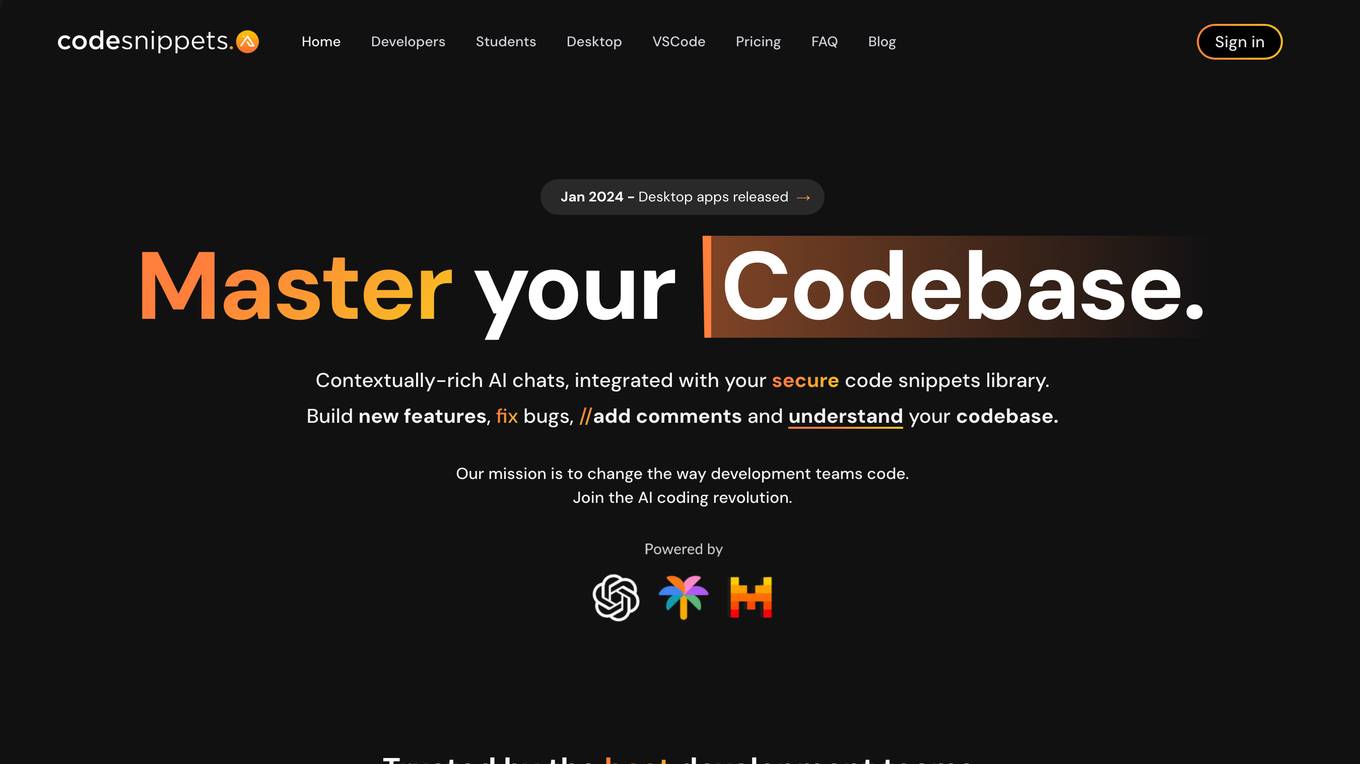
Code Snippets AI
Code Snippets AI is an AI-powered code snippets library for teams. It helps developers master their codebase with contextually-rich AI chats, integrated with a secure code snippets library. Developers can build new features, fix bugs, add comments, and understand their codebase with the help of Code Snippets AI. The tool is trusted by the best development teams and helps developers code smarter than ever. With Code Snippets AI, developers can leverage the power of a codebase aware assistant, helping them write clean, performance optimized code. They can also create documentation, refactor, debug and generate code with full codebase context. This helps developers spend more time creating code and less time debugging errors.
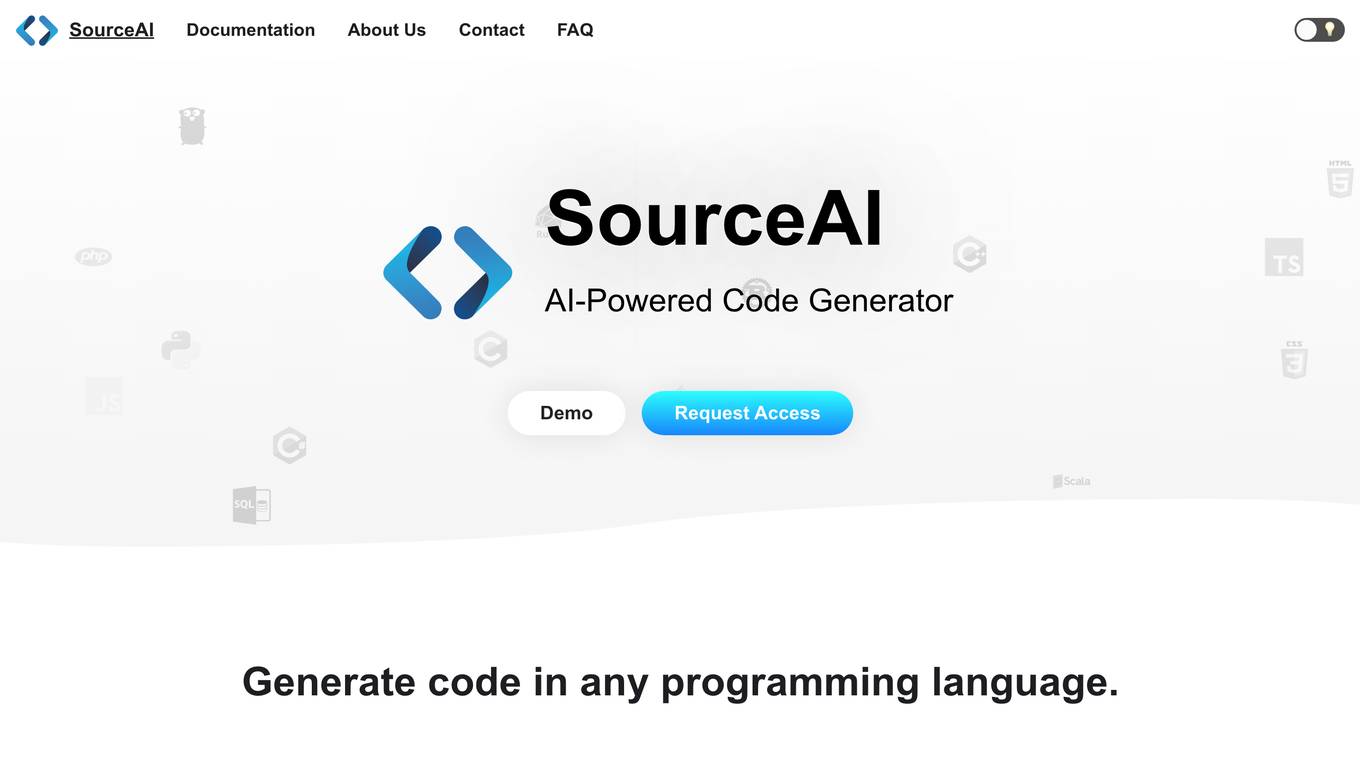
SourceAI
SourceAI is an AI-powered code generator that allows users to generate code in any programming language. It is easy to use, even for non-developers, and has a clear and intuitive interface. SourceAI is powered by GPT-3 and Codex, the most advanced AI technology available. It can be used to generate code for a variety of tasks, including calculating the factorial of a number, finding the roots of a polynomial, and translating text from one language to another.
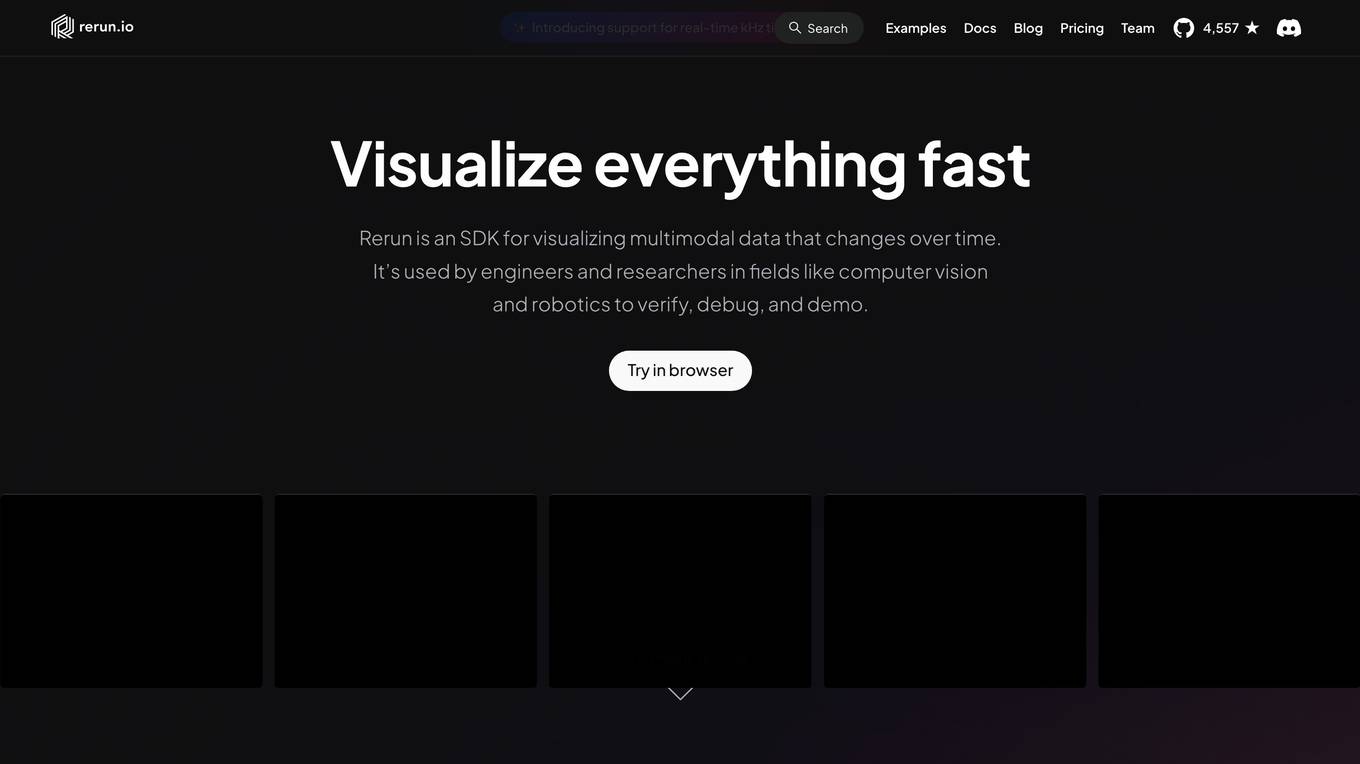
Rerun
Rerun is an SDK, time-series database, and visualizer for temporal and multimodal data. It is used in fields like robotics, spatial computing, 2D/3D simulation, and finance to verify, debug, and explain data. Rerun allows users to log data like tensors, point clouds, and text to create streams, visualize and interact with live and recorded streams, build layouts, customize visualizations, and extend data and UI functionalities. The application provides a composable data model, dynamic schemas, and custom views for enhanced data visualization and analysis.
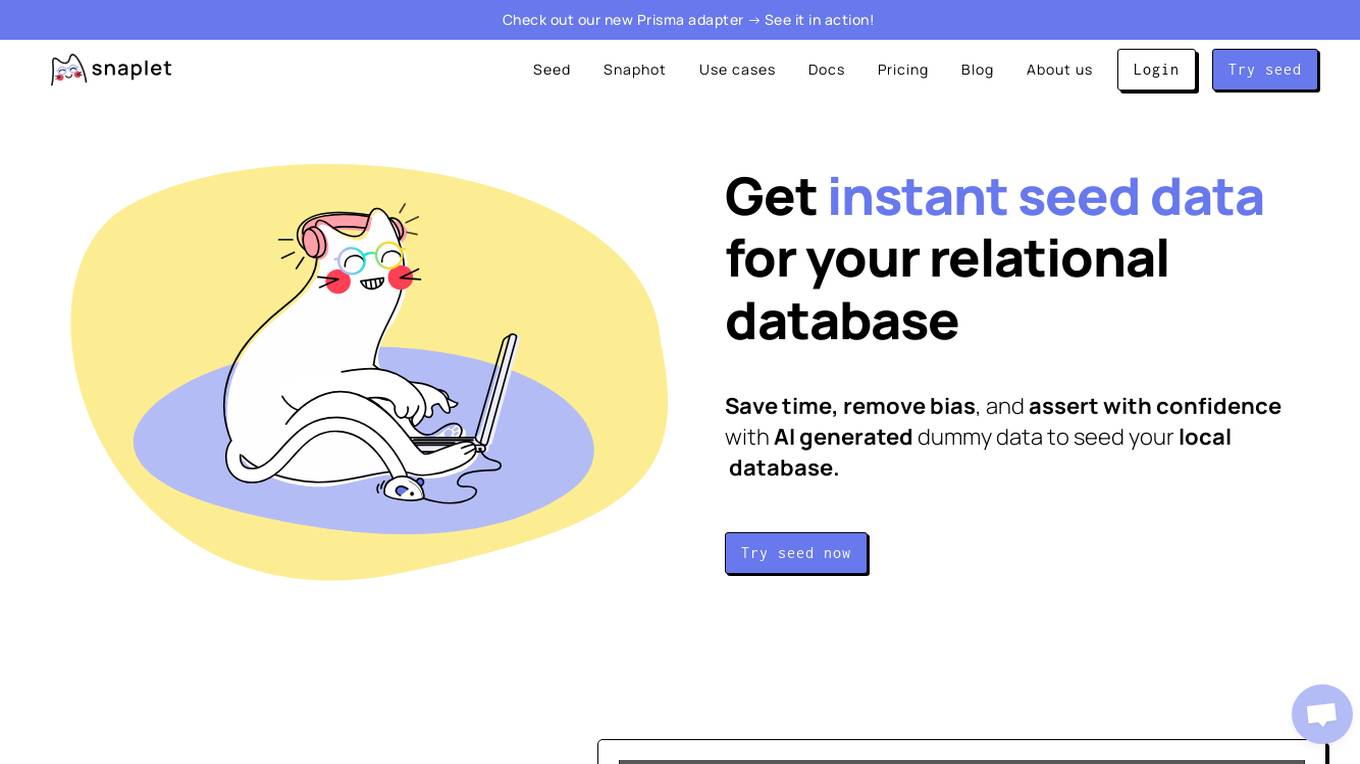
Snaplet
Snaplet is a data management tool for developers that provides AI-generated dummy data for local development, end-to-end testing, and debugging. It uses a real programming language (TypeScript) to define and edit data, ensuring type safety and auto-completion. Snaplet understands database structures and relationships, automatically transforming personally identifiable information and seeding data accordingly. It integrates seamlessly into development workflows, providing data where it's needed most: on local machines, for CI/CD testing, and preview environments.
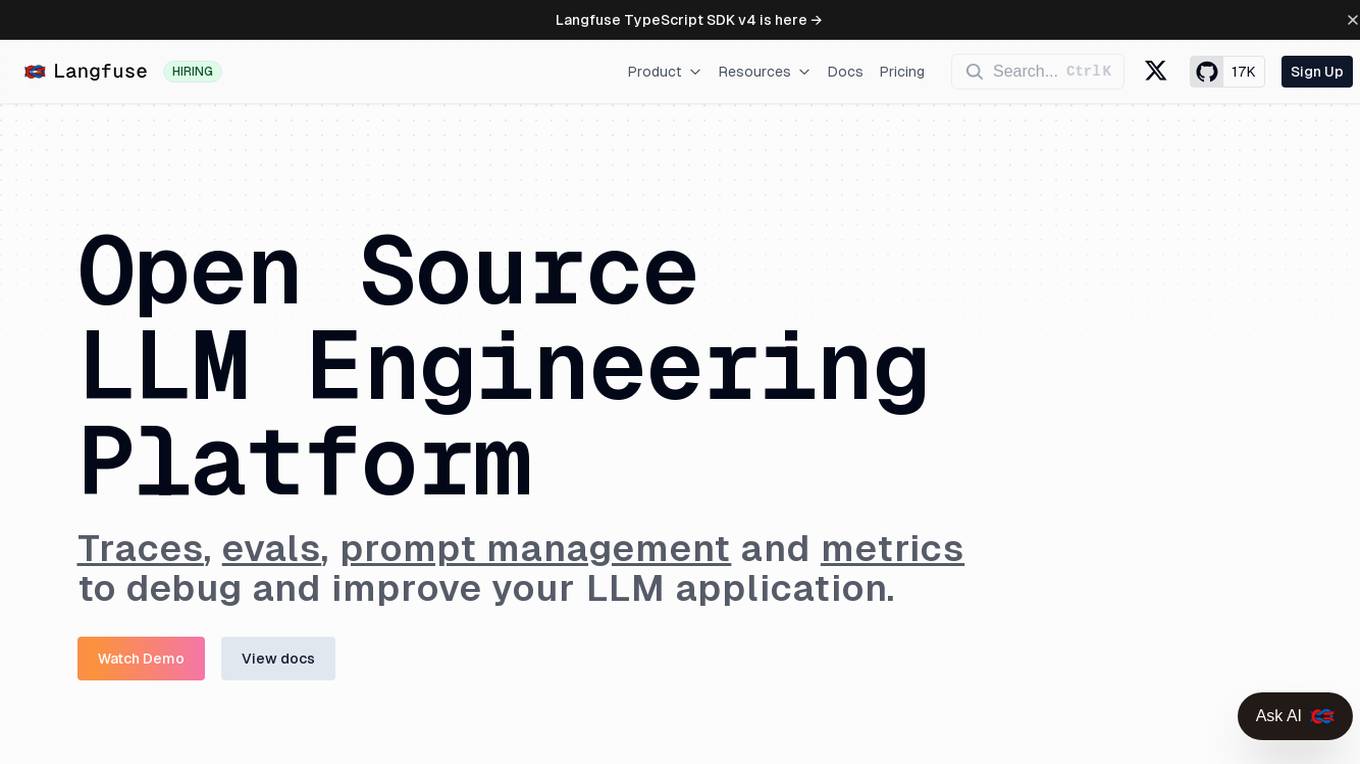
Langfuse
Langfuse is an AI tool that offers the Langfuse TypeScript SDK v4 for building and debugging LLM (Large Language Models) applications. It provides features such as tracing, prompt management, evaluation, and metrics to enhance the performance of LLM applications. Langfuse is backed by a team of experts and offers integrations with various platforms and SDKs. The tool aims to simplify the development process of complex LLM applications and improve overall efficiency.
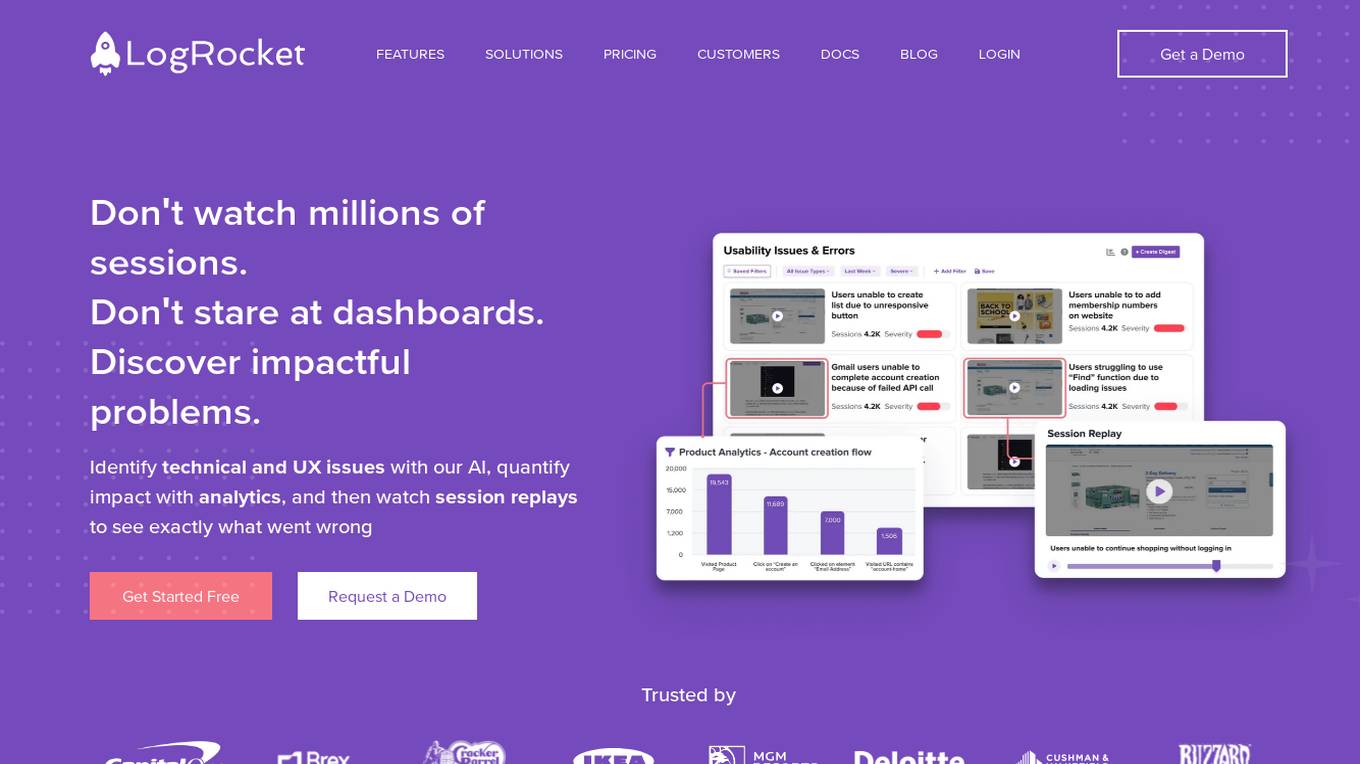
LogRocket
LogRocket is a session replay, product analytics, and issue detection platform that helps software teams deliver the best web and mobile experiences. With LogRocket, you can see exactly what users experienced on your app, as well as DOM playback, console and network logs, errors, and performance data. You can also surface the most impactful user issues with JavaScript errors, network errors, stack traces, automatic triaging, and alerting. LogRocket also provides product analytics to help you understand how users are interacting with your app, and UX analytics to help you visualize how users experience your app at both the individual and aggregate level.
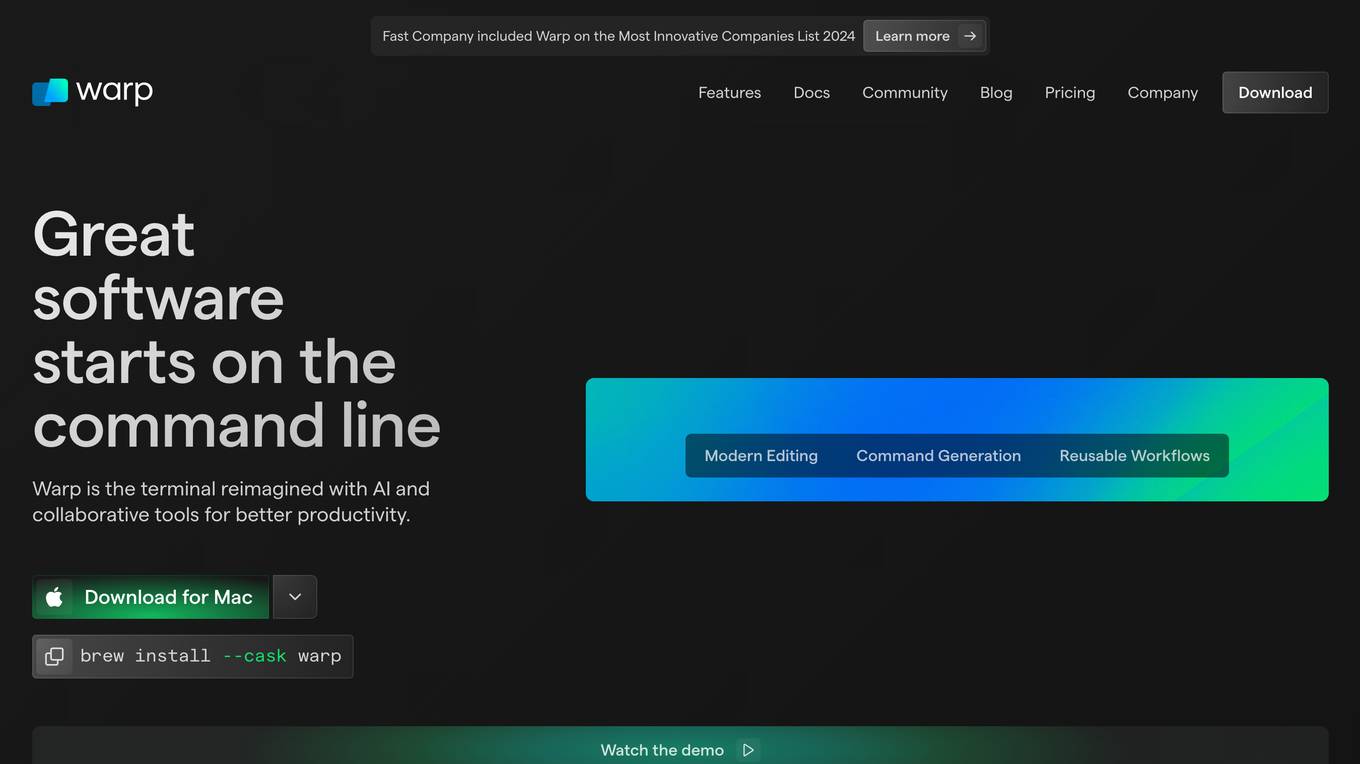
Warp
Warp is a terminal reimagined with AI and collaborative tools for better productivity. It is built with Rust for speed and has an intuitive interface. Warp includes features such as modern editing, command generation, reusable workflows, and Warp Drive. Warp AI allows users to ask questions about programming and get answers, recall commands, and debug errors. Warp Drive helps users organize hard-to-remember commands and share them with their team. Warp is a private and secure application that is trusted by hundreds of thousands of professional developers.
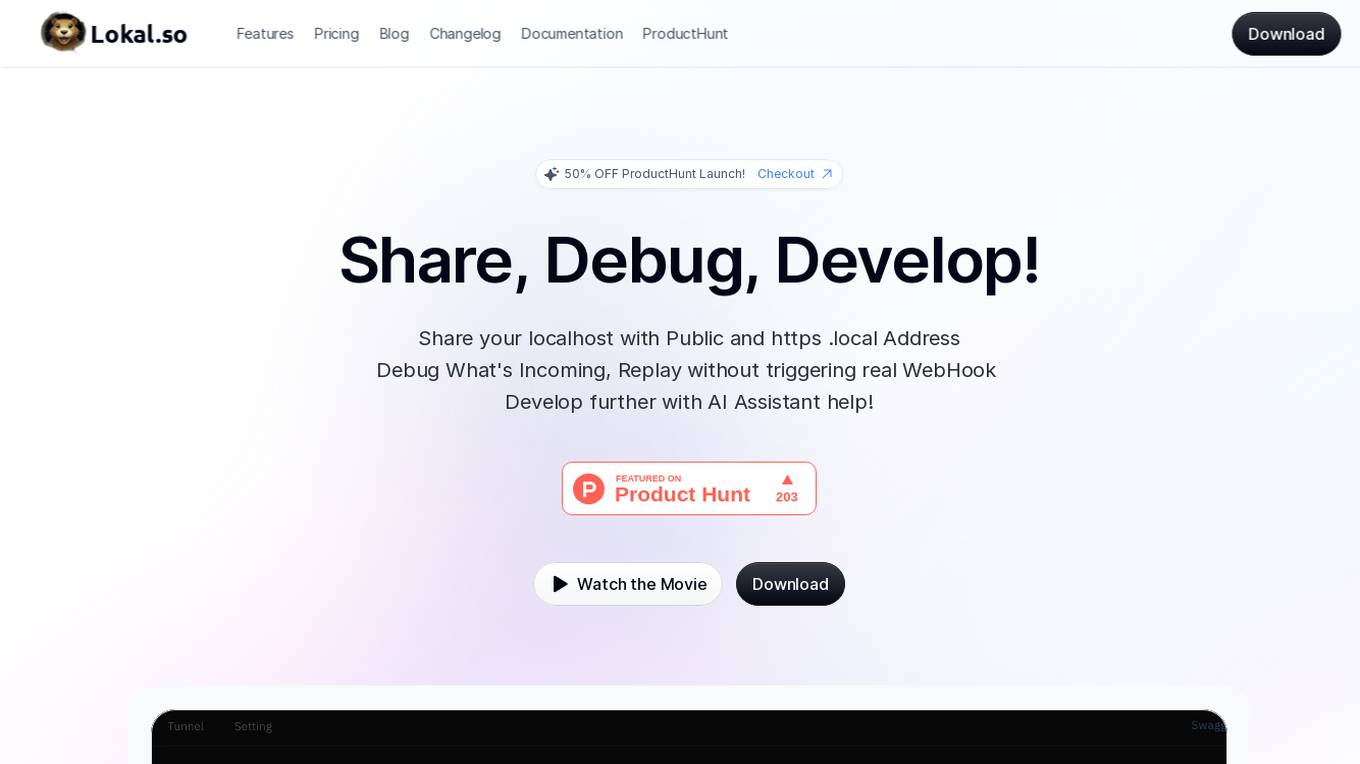
Lokal.so
Lokal.so is an AI-powered tool designed to supercharge your localhost development experience. It offers features like sharing your localhost with the public, debugging incoming requests, and developing with the assistance of an AI assistant. With Lokal.so, you can leverage Cloudflare's network for faster site delivery, use a built-in S3 server for easy file debugging, and automatically convert JSON payloads into different programming language models. The tool aims to simplify local development by providing a self-hosted tunnel server, unlimited .local domain access, and endpoint management with memorable names.
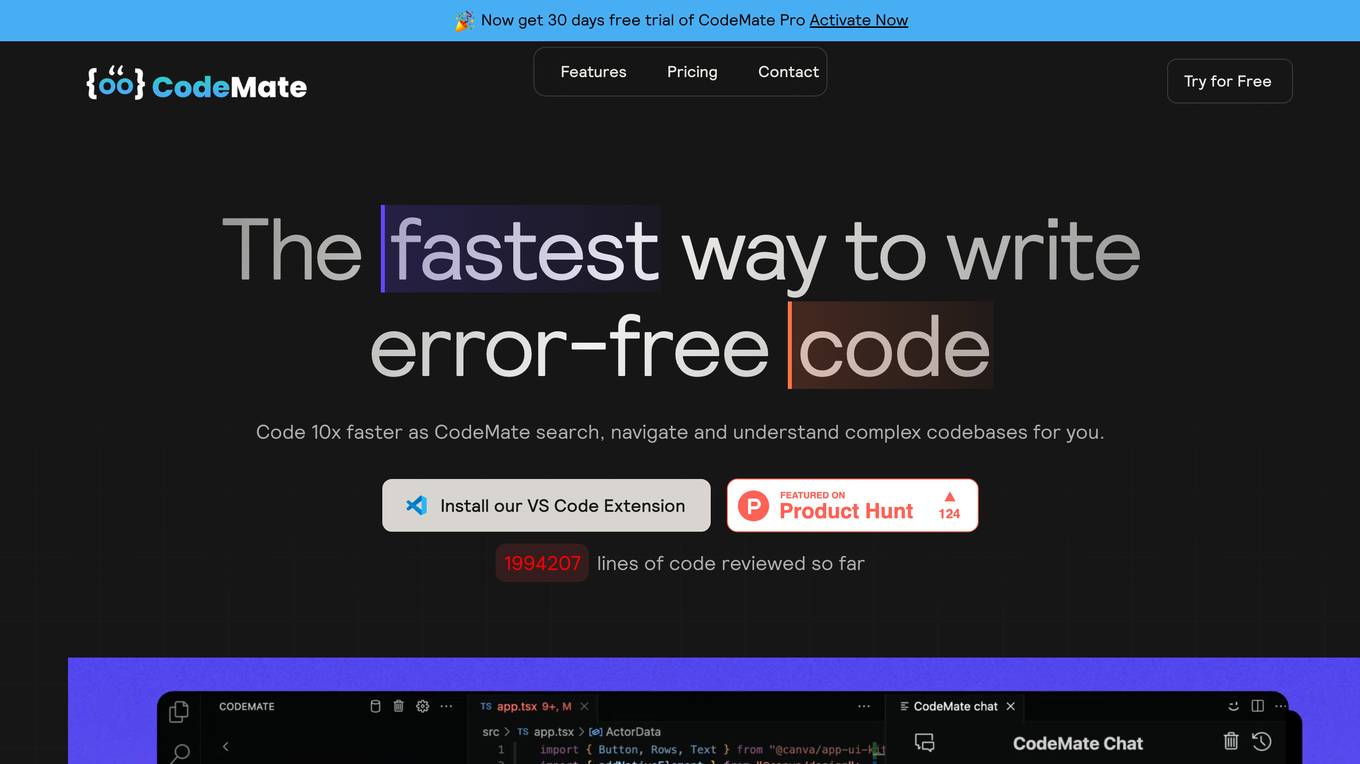
CodeMate
CodeMate is an AI pair programmer tool designed to help developers write error-free code faster. It offers features like code navigation, understanding complex codebases, intuitive interface for smarter coding, instant debugging, code refactoring, and AI-powered code reviews. CodeMate supports all programming languages and provides suggestions for code optimizations. The tool ensures the security and privacy of user code and offers different pricing plans for individual developers, teams, and enterprises. Users can interact with their codebase, documentation, and Git repositories using CodeMate Chat. The tool aims to improve code quality and productivity by acting as a co-developer while programming.
0 - Open Source AI Tools
20 - OpenAI Gpts
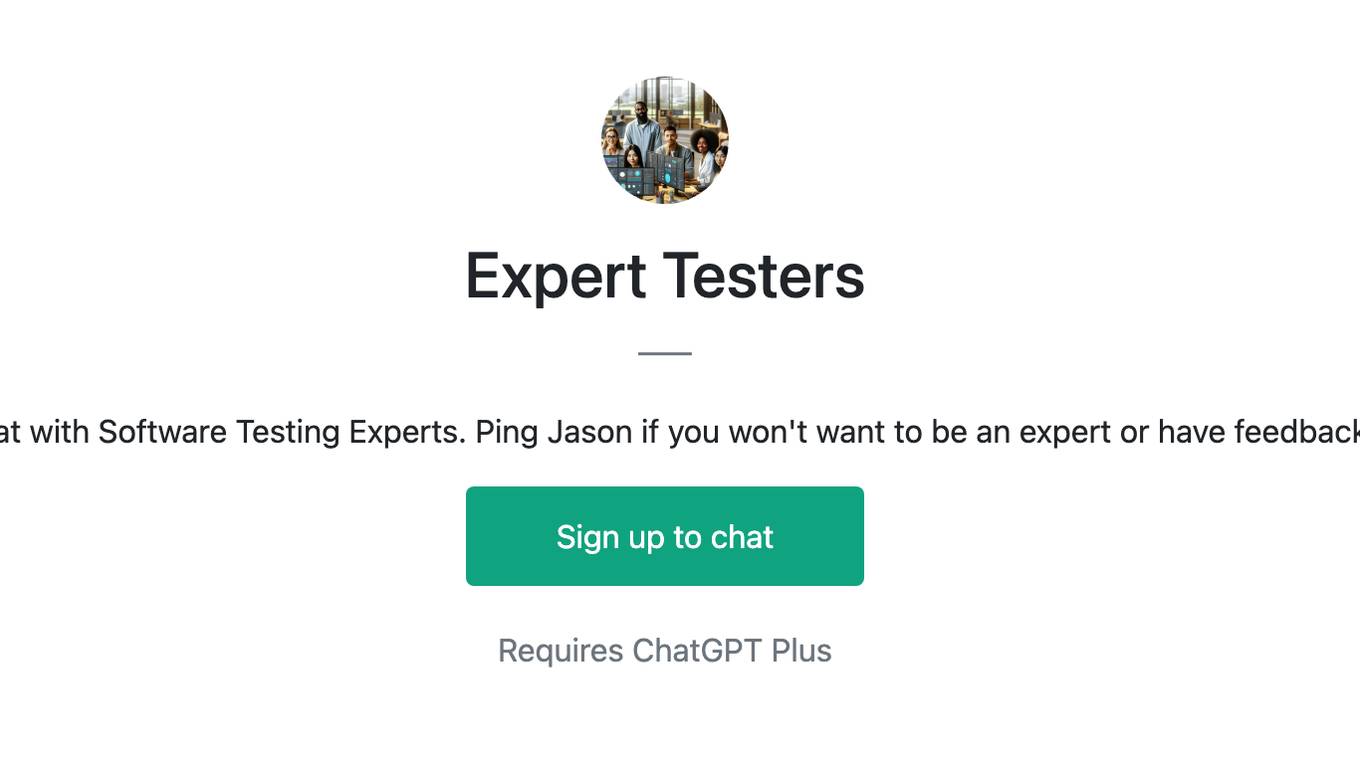
Expert Testers
Chat with Software Testing Experts. Ping Jason if you won't want to be an expert or have feedback.
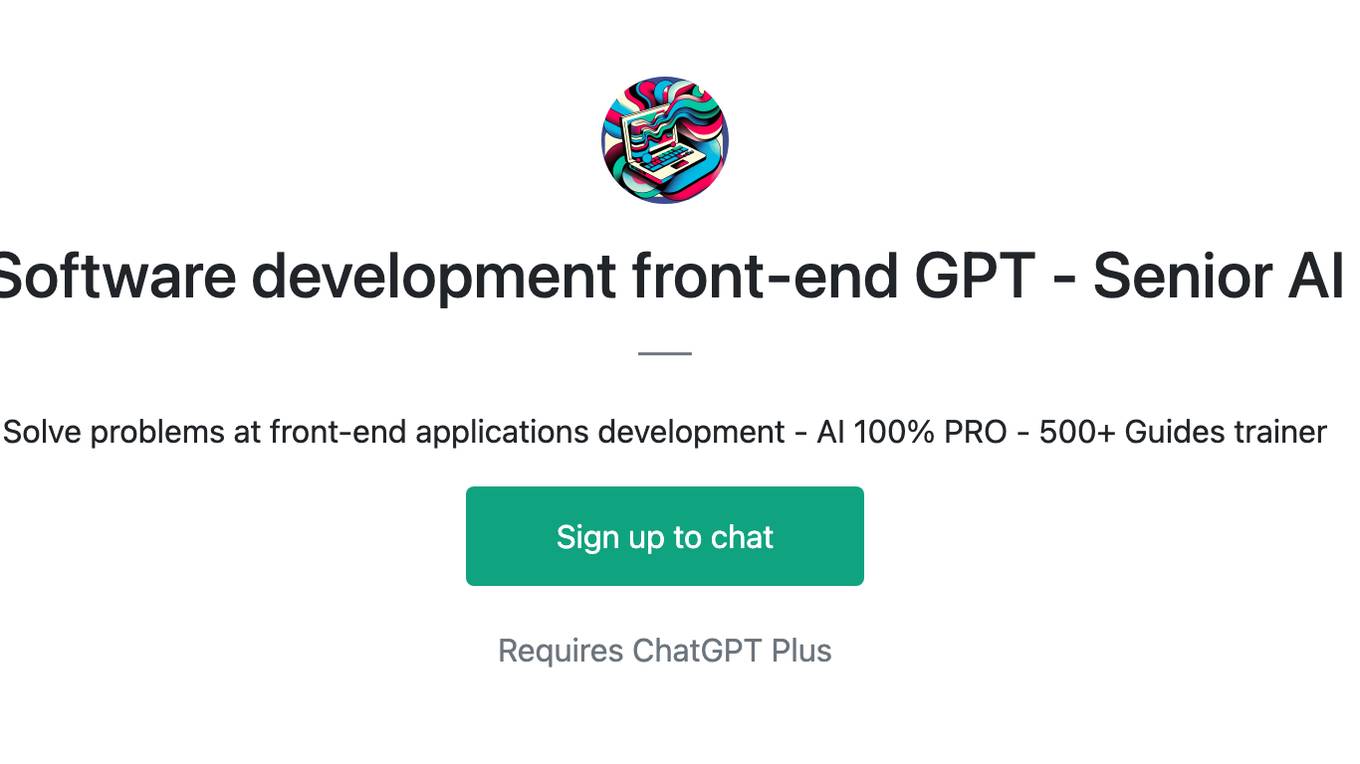
Software development front-end GPT - Senior AI
Solve problems at front-end applications development - AI 100% PRO - 500+ Guides trainer
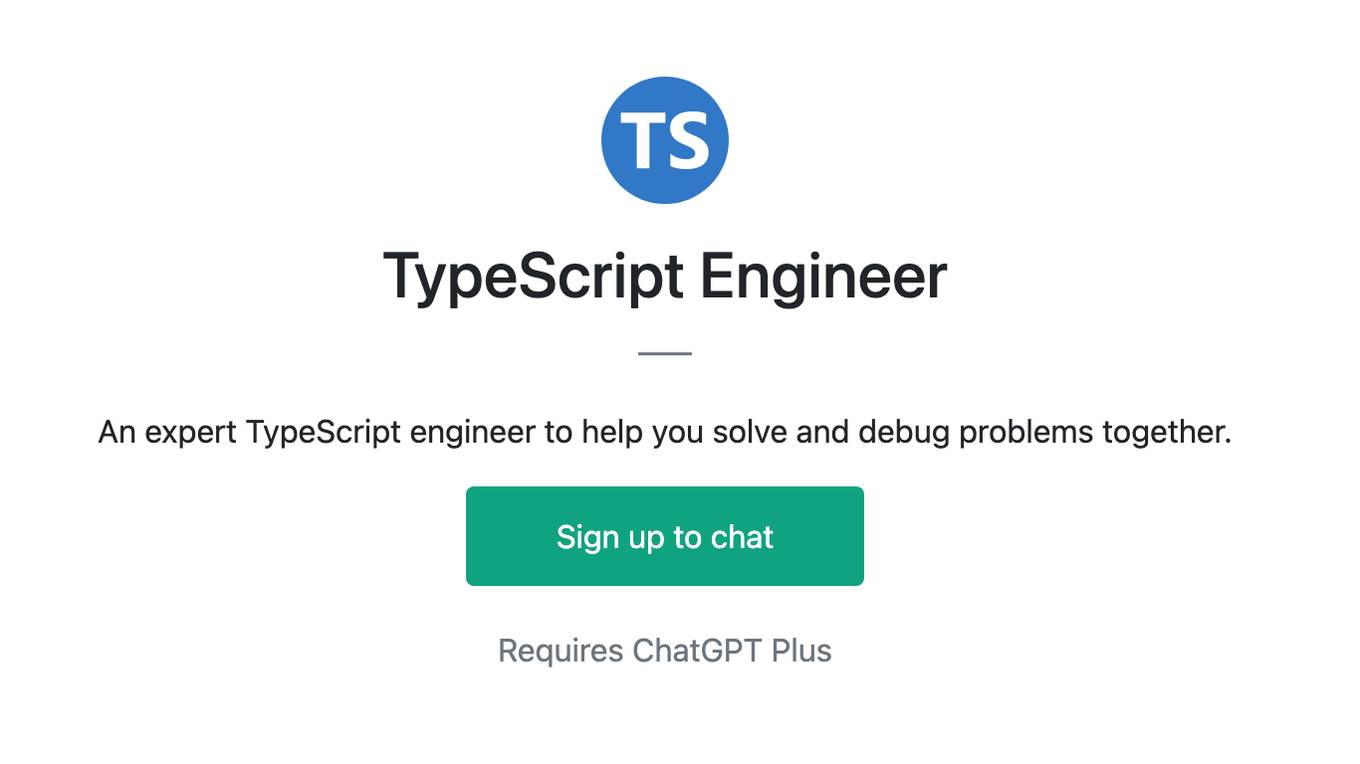
TypeScript Engineer
An expert TypeScript engineer to help you solve and debug problems together.
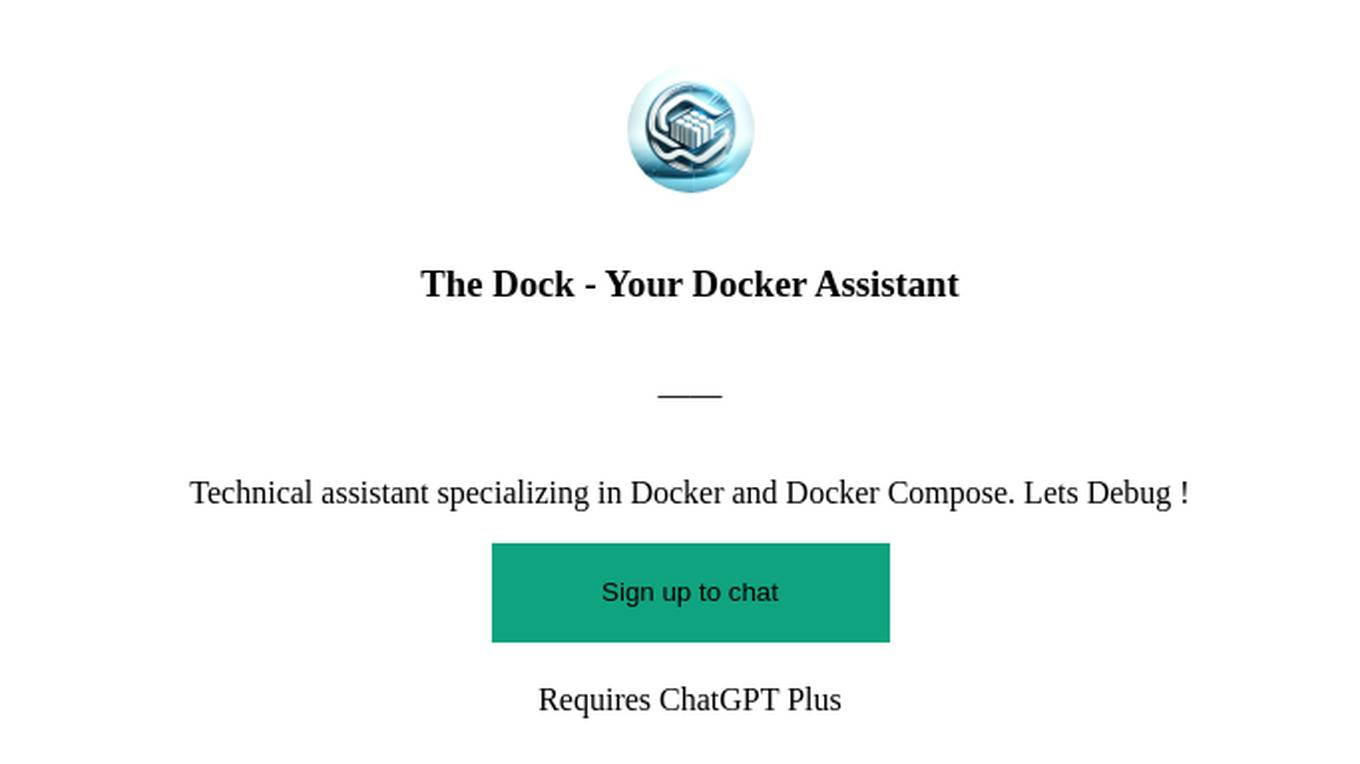
The Dock - Your Docker Assistant
Technical assistant specializing in Docker and Docker Compose. Lets Debug !
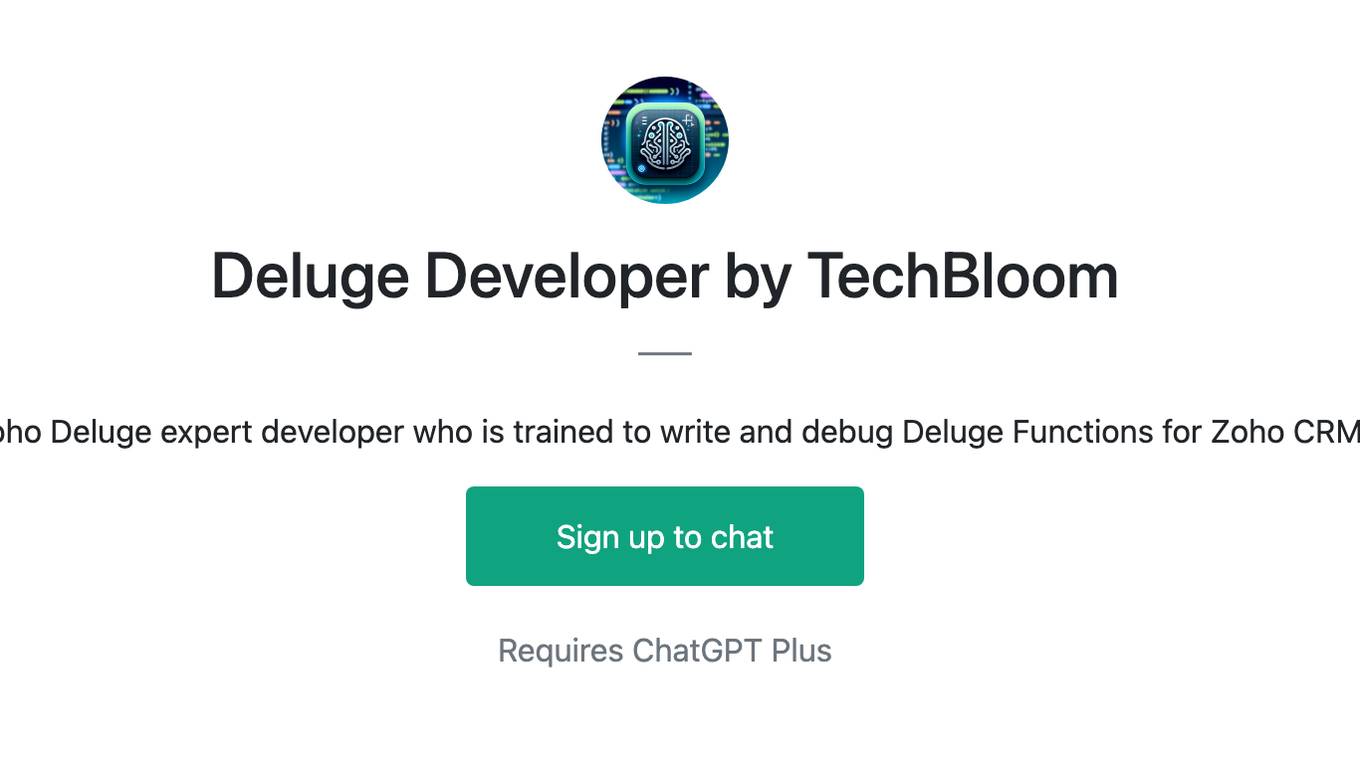
Deluge Developer by TechBloom
Zoho Deluge expert developer who is trained to write and debug Deluge Functions for Zoho CRM
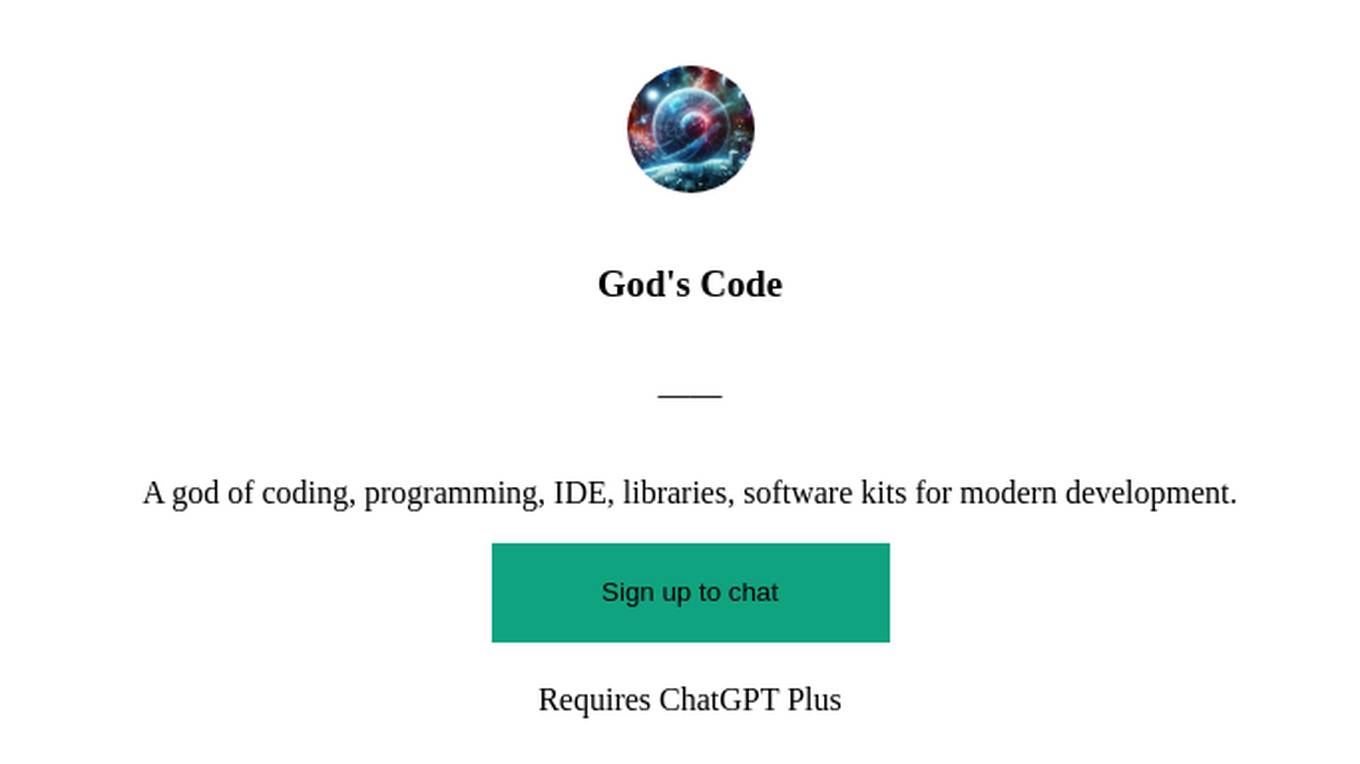
God's Code
A god of coding, programming, IDE, libraries, software kits for modern development.
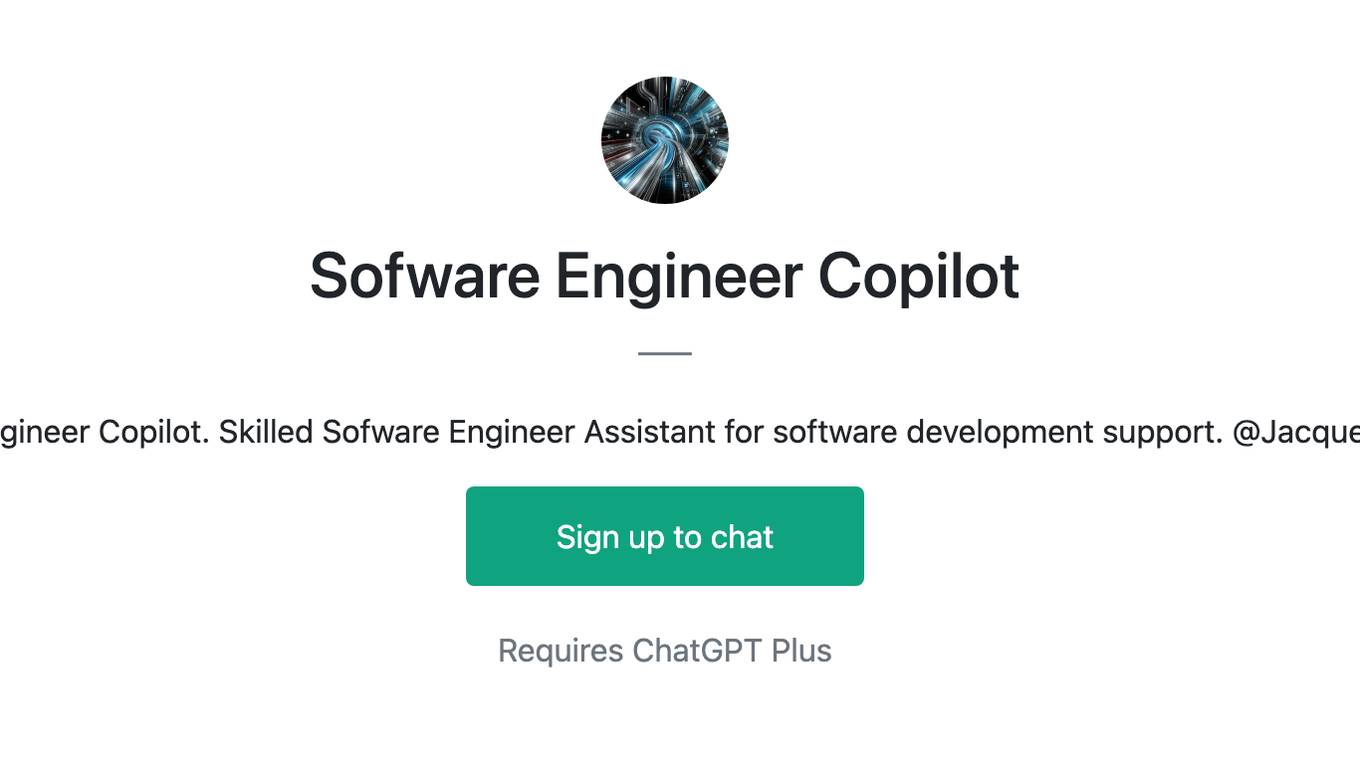
Sofware Engineer Copilot
Sofware Engineer Copilot. Skilled Sofware Engineer Assistant for software development support. @JacquesGariepy
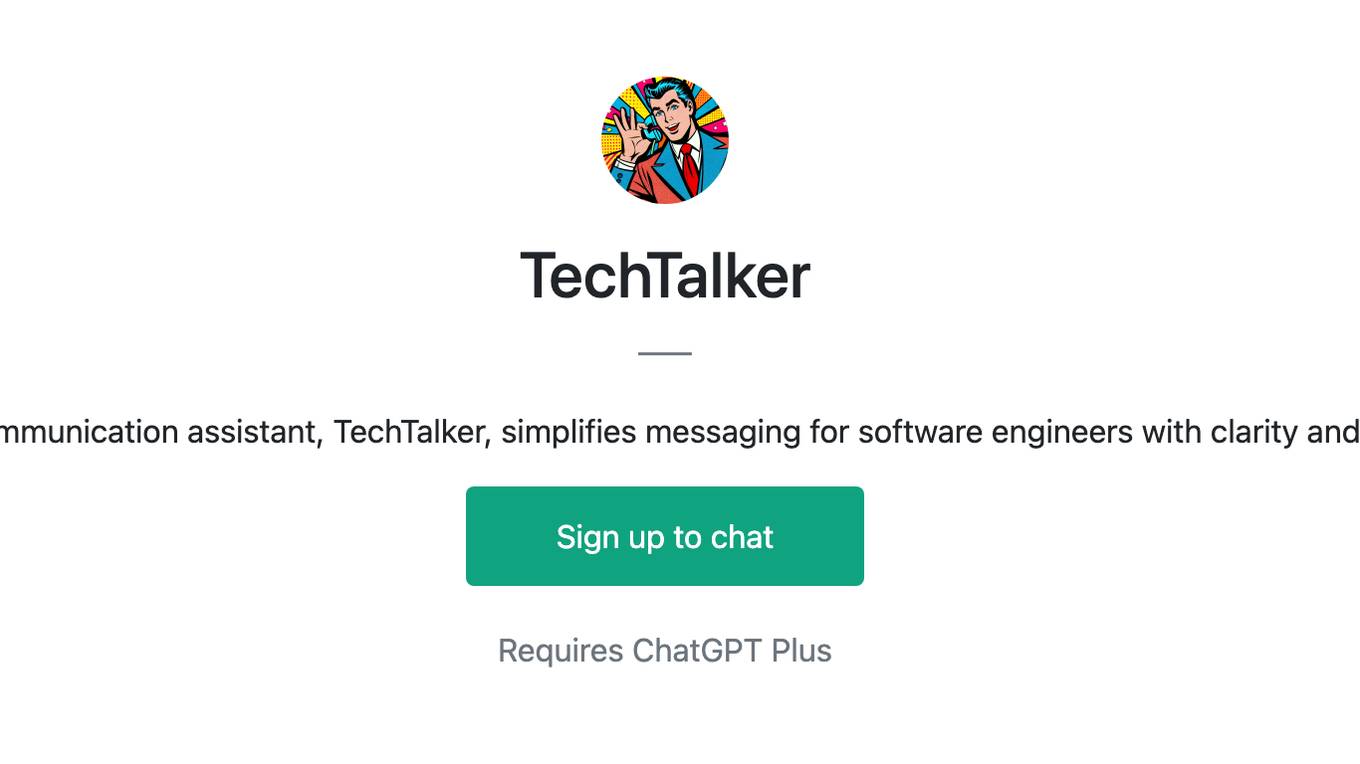
TechTalker
Your communication assistant, TechTalker, simplifies messaging for software engineers with clarity and ease.
